

The Caravan
Students shouldn’t have homework on weekends.
Jonathan Kuptel '22 , Staff Writer | November 7, 2021

Jonathan Kuptel
MC senior Imari Price works on a assignment for 21st-Century Media class.
Teachers and students have different opinions about homework. Saying it is not fair is the usual argument, but being fair is not the issue. It is about students being prepared. Daily homework assignments can be difficult, and weekends homework assignments are worse. Students operate best when they are well-rested and ready to go. A weekend with no homework would help them to be fresh and ready on Monday morning. Weekend assignments tend to be longer and more difficult.
The students have a difficult day with classes, practices, and going to school. By Friday, (test day) they are near exhaustion. Most tests are given on Fridays. Homework on Monday-Thursday is time-consuming. Some weekends will include assignments in more than 1 class. Those who go to Mount Carmel are near the end of their rope by 2:40 PM on Friday. I have had other discussions with the senior class and we all feel pretty tired at the end of the day at 2:40 PM. A free weekend helps to get prepared for the next grind to start. No homework weekends assures better sleep cycles and a body that has recovered and refreshed. Weekends include chores around the house and family commitments. This plus weekends assignments lead to a lack of sleep. This means Monday will have a positive attitude. No homework on weekends also means more family time. This is a bonus.
Alfie Kohn in his book The Homework Myth: Why Are Kids Get Too Much Of A Bad Thing says, “There is no evidence to demonstrate that homework benefits students.” The homework on weekends starts in elementary school and continues throughout high school.
Mr. Kohn states that homework on weekends starts in elementary school and continues throughout high school. This supports the argument that weekend homework starts in elementary school and now students at Mount Carmel High School have to deal with weekend assignments. The weekend assignments take too much time and are a waste of students’ time.
Nancy Kalish , author of The Case Against Homework: How Homework Is Hurting Our Children And What We Can Do About It, says “simply busy work” makes learning “a chore rather than a positive, constructive experience.”
Receiving weekend homework that is not discussed in class and counts only as “busy work” is counterproductive. Students finish the assignments because they are required to be done. When the homework is not reviewed on Monday, it leads to frustration. Busy homework that serves no purpose is never a good idea.
Gerald LeTender of Penn State’s Education Policy Studies Department points out the “shotgun approach to homework when students receive the same photocopied assignment which is then checked as complete rather than discussed is not very effective.” Some teachers discuss the homework assignments and that validates the assignment. Some teachers however just check homework assignments for completion. LeTender goes on to say, “If there’s no feedback and no monitoring, the homework is probably not effective.” Researchers from the Curry School of Education at the University of Virginia had similar findings in their study “ When Is Homework Worth The Time?” Researchers reported no substantive difference in the grades of students who had homework completion. Adam Maltese, a researcher , noted , “Our results hint that maybe homework is not being used as well as it could be. Even one teacher who assigns busy shotgun homework is enough to be a bad idea.
Students come to know when homework is the “shotgun approach.” They find this kind of assignment dull. Students have no respect for assignments like this. Quality assignments are appreciated by students.
Etta Kralovec and John Buell in their book How Homework Disrupts Families, Overburdens Children, And Limits Learning assert that homework contributes to a corporate style, competitive U.S. culture that overvalued work to the detriment of personal and familial well being. They go on to call for an end to homework, but to extend the school day.
Cooper, Robinson, and Patalc, in 2006 warned that homework could become counter productive. Homework is counterproductive when it is a (shotgun) assignment. To reiterate, not all homework is bad. Bad homework which is not reviewed in class just plain “busy work” is not positive and could be counterproductive.
Sara Croll, Literacy Coach and Author, believes too much homework causes stress for students. Diana Stelin, teacher, artist, and mother says, “I’m absolutely in favor of this ban. Homework is homework, it doesn’t matter what class it comes from. What it does is create negative associations in students of all ages, takes away their innate desire to learn, and makes the subject a dreaded chore.”
When students come to dread their homework, they do not do a great job on these assignments. Making students do a lot of homework isn’t beneficial because they get drowsy when they work at it for hours and hours at a time. It is hard for the brain to function properly when it is tired and boring.
Pat Wayman, Teacher and CEO of HowtoLearn.com says, “Many kids are working as many hours as their overscheduled parents and it is taking a toll.” “Their brains and their bodies need time to be curious, have fun, be creative and just be a kid.”
No homework on weekends is not just a wish, but it is supported by all of these educators and authors. They all champion limiting homework are totally opposed to homework assignments. Educators and students agree that no homework on weekends is a good idea. Meaningful homework, a longer school day, and discussion of homework are what these educators and authors encourage.

Mount Carmel benefits from trimesters
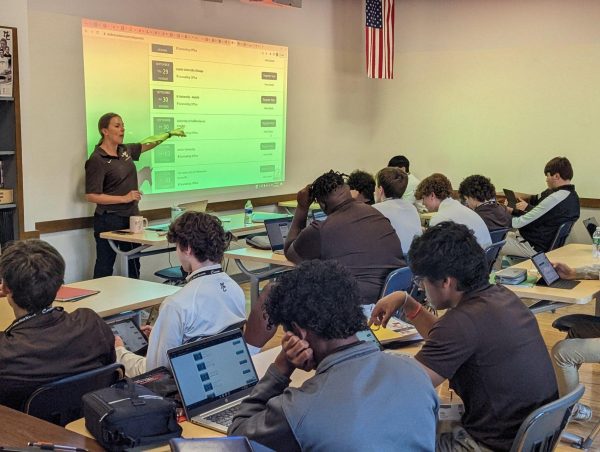
Students would benefit from financial planning, life skills
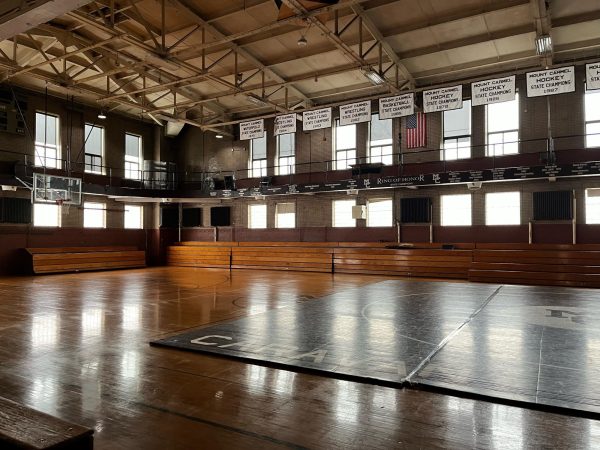
Nothing beats events in the Alumni Gym

MLK exemplified the values of Mt. Carmel

The Caravan Cup should make a return

It’s time to return to packing the stands, Caravan fans

In this season of thankfulness, it’s great to have The Caravan back

Matt Potter putting on the gloves to help others

MC shows appreciation at Veterans Day assembly

The importance of Caravan alums coming back to serve
The student news site of Mount Carmel High School
- Journalism at Mount Carmel
- pollsarchive
- Sports Center
share this!
August 16, 2021
Is it time to get rid of homework? Mental health experts weigh in
by Sara M Moniuszko

It's no secret that kids hate homework. And as students grapple with an ongoing pandemic that has had a wide-range of mental health impacts, is it time schools start listening to their pleas over workloads?
Some teachers are turning to social media to take a stand against homework .
Tiktok user @misguided.teacher says he doesn't assign it because the "whole premise of homework is flawed."
For starters, he says he can't grade work on "even playing fields" when students' home environments can be vastly different.
"Even students who go home to a peaceful house, do they really want to spend their time on busy work? Because typically that's what a lot of homework is, it's busy work," he says in the video that has garnered 1.6 million likes. "You only get one year to be 7, you only got one year to be 10, you only get one year to be 16, 18."
Mental health experts agree heavy work loads have the potential do more harm than good for students, especially when taking into account the impacts of the pandemic. But they also say the answer may not be to eliminate homework altogether.
Emmy Kang, mental health counselor at Humantold, says studies have shown heavy workloads can be "detrimental" for students and cause a "big impact on their mental, physical and emotional health."
"More than half of students say that homework is their primary source of stress, and we know what stress can do on our bodies," she says, adding that staying up late to finish assignments also leads to disrupted sleep and exhaustion.
Cynthia Catchings, a licensed clinical social worker and therapist at Talkspace, says heavy workloads can also cause serious mental health problems in the long run, like anxiety and depression.
And for all the distress homework causes, it's not as useful as many may think, says Dr. Nicholas Kardaras, a psychologist and CEO of Omega Recovery treatment center.
"The research shows that there's really limited benefit of homework for elementary age students, that really the school work should be contained in the classroom," he says.
For older students, Kang says homework benefits plateau at about two hours per night.
"Most students, especially at these high-achieving schools, they're doing a minimum of three hours, and it's taking away time from their friends from their families, their extracurricular activities. And these are all very important things for a person's mental and emotional health."
Catchings, who also taught third to 12th graders for 12 years, says she's seen the positive effects of a no homework policy while working with students abroad.
"Not having homework was something that I always admired from the French students (and) the French schools, because that was helping the students to really have the time off and really disconnect from school ," she says.
The answer may not be to eliminate homework completely, but to be more mindful of the type of work students go home with, suggests Kang, who was a high-school teacher for 10 years.
"I don't think (we) should scrap homework, I think we should scrap meaningless, purposeless busy work-type homework. That's something that needs to be scrapped entirely," she says, encouraging teachers to be thoughtful and consider the amount of time it would take for students to complete assignments.
The pandemic made the conversation around homework more crucial
Mindfulness surrounding homework is especially important in the context of the last two years. Many students will be struggling with mental health issues that were brought on or worsened by the pandemic, making heavy workloads even harder to balance.
"COVID was just a disaster in terms of the lack of structure. Everything just deteriorated," Kardaras says, pointing to an increase in cognitive issues and decrease in attention spans among students. "School acts as an anchor for a lot of children, as a stabilizing force, and that disappeared."
But even if students transition back to the structure of in-person classes, Kardaras suspects students may still struggle after two school years of shifted schedules and disrupted sleeping habits.
"We've seen adults struggling to go back to in-person work environments from remote work environments. That effect is amplified with children because children have less resources to be able to cope with those transitions than adults do," he explains.
'Get organized' ahead of back-to-school
In order to make the transition back to in-person school easier, Kang encourages students to "get good sleep, exercise regularly (and) eat a healthy diet."
To help manage workloads, she suggests students "get organized."
"There's so much mental clutter up there when you're disorganized... sitting down and planning out their study schedules can really help manage their time," she says.
Breaking assignments up can also make things easier to tackle.
"I know that heavy workloads can be stressful, but if you sit down and you break down that studying into smaller chunks, they're much more manageable."
If workloads are still too much, Kang encourages students to advocate for themselves.
"They should tell their teachers when a homework assignment just took too much time or if it was too difficult for them to do on their own," she says. "It's good to speak up and ask those questions. Respectfully, of course, because these are your teachers. But still, I think sometimes teachers themselves need this feedback from their students."
©2021 USA Today Distributed by Tribune Content Agency, LLC.
Explore further
Feedback to editors

Researchers observe anomalously bright single-molecule upconversion electroluminescence phenomenon
21 minutes ago

Acids enable adhesive electrodes for thin, flexible supercapacitors

Researchers reveal evidence of transition from ergodic toward ergodic breaking dynamics
29 minutes ago

Ancient Adélie penguin DNA reveals that small repeats persist for hundreds of millions of years

Machine learning provides a new picture of the great gray owl

New single-cell analysis tech incorporates advanced fiber optics directly into microfluidic chips

The role of interfacial amino acids in shaping bio-electronic communication between proteins
2 hours ago

Supercomputer simulations decode the mass puzzle of the first stars

New synthesis platform allows for rapid cancer drug synthesis and testing

Catching vibes: Novel approach captures arthropod-driven vibrations
Relevant physicsforums posts, how is physics taught without calculus.
Mar 29, 2024
Why are Physicists so informal with mathematics?
Mar 24, 2024
The changing physics curriculum in 1961
Suggestions for using math puzzles to stimulate my math students.
Mar 21, 2024
The New California Math Framework: Another Step Backwards?
Mar 14, 2024
Rant about working in the tutoring lab: How should I deal with this?
Feb 25, 2024
More from STEM Educators and Teaching
Related Stories

Smartphones are lowering student's grades, study finds
Aug 18, 2020

Doing homework is associated with change in students' personality
Oct 6, 2017

Scholar suggests ways to craft more effective homework assignments
Oct 1, 2015

Should parents help their kids with homework?
Aug 29, 2019

How much math, science homework is too much?
Mar 23, 2015

Anxiety, depression, burnout rising as college students prepare to return to campus
Jul 26, 2021
Recommended for you

Research reveals significant effects of onscreen instructors during video classes in aiding student learning
Mar 25, 2024

Prestigious journals make it hard for scientists who don't speak English to get published, study finds
Mar 23, 2024

Using Twitter/X to promote research findings found to have little impact on number of citations
Mar 22, 2024

Gender and racial discrimination uncovered in leadership positions at Australia's leading universities
Mar 15, 2024

Study finds children in Flint experienced educational declines even if they did not have lead pipes

Could iPhones replace microscopes in early STEM education?
Let us know if there is a problem with our content.
Use this form if you have come across a typo, inaccuracy or would like to send an edit request for the content on this page. For general inquiries, please use our contact form . For general feedback, use the public comments section below (please adhere to guidelines ).
Please select the most appropriate category to facilitate processing of your request
Thank you for taking time to provide your feedback to the editors.
Your feedback is important to us. However, we do not guarantee individual replies due to the high volume of messages.
E-mail the story
Your email address is used only to let the recipient know who sent the email. Neither your address nor the recipient's address will be used for any other purpose. The information you enter will appear in your e-mail message and is not retained by Phys.org in any form.
Newsletter sign up
Get weekly and/or daily updates delivered to your inbox. You can unsubscribe at any time and we'll never share your details to third parties.
More information Privacy policy
Donate and enjoy an ad-free experience
We keep our content available to everyone. Consider supporting Science X's mission by getting a premium account.
E-mail newsletter
Is it time to get rid of homework? Mental health experts weigh in.

It's no secret that kids hate homework. And as students grapple with an ongoing pandemic that has had a wide range of mental health impacts, is it time schools start listening to their pleas about workloads?
Some teachers are turning to social media to take a stand against homework.
Tiktok user @misguided.teacher says he doesn't assign it because the "whole premise of homework is flawed."
For starters, he says, he can't grade work on "even playing fields" when students' home environments can be vastly different.
"Even students who go home to a peaceful house, do they really want to spend their time on busy work? Because typically that's what a lot of homework is, it's busy work," he says in the video that has garnered 1.6 million likes. "You only get one year to be 7, you only got one year to be 10, you only get one year to be 16, 18."
Mental health experts agree heavy workloads have the potential do more harm than good for students, especially when taking into account the impacts of the pandemic. But they also say the answer may not be to eliminate homework altogether.
Emmy Kang, mental health counselor at Humantold , says studies have shown heavy workloads can be "detrimental" for students and cause a "big impact on their mental, physical and emotional health."
"More than half of students say that homework is their primary source of stress, and we know what stress can do on our bodies," she says, adding that staying up late to finish assignments also leads to disrupted sleep and exhaustion.
Cynthia Catchings, a licensed clinical social worker and therapist at Talkspace , says heavy workloads can also cause serious mental health problems in the long run, like anxiety and depression.
And for all the distress homework can cause, it's not as useful as many may think, says Dr. Nicholas Kardaras, a psychologist and CEO of Omega Recovery treatment center.
"The research shows that there's really limited benefit of homework for elementary age students, that really the school work should be contained in the classroom," he says.
For older students, Kang says, homework benefits plateau at about two hours per night.
"Most students, especially at these high achieving schools, they're doing a minimum of three hours, and it's taking away time from their friends, from their families, their extracurricular activities. And these are all very important things for a person's mental and emotional health."
Catchings, who also taught third to 12th graders for 12 years, says she's seen the positive effects of a no-homework policy while working with students abroad.
"Not having homework was something that I always admired from the French students (and) the French schools, because that was helping the students to really have the time off and really disconnect from school," she says.
The answer may not be to eliminate homework completely but to be more mindful of the type of work students take home, suggests Kang, who was a high school teacher for 10 years.
"I don't think (we) should scrap homework; I think we should scrap meaningless, purposeless busy work-type homework. That's something that needs to be scrapped entirely," she says, encouraging teachers to be thoughtful and consider the amount of time it would take for students to complete assignments.
The pandemic made the conversation around homework more crucial
Mindfulness surrounding homework is especially important in the context of the past two years. Many students will be struggling with mental health issues that were brought on or worsened by the pandemic , making heavy workloads even harder to balance.
"COVID was just a disaster in terms of the lack of structure. Everything just deteriorated," Kardaras says, pointing to an increase in cognitive issues and decrease in attention spans among students. "School acts as an anchor for a lot of children, as a stabilizing force, and that disappeared."
But even if students transition back to the structure of in-person classes, Kardaras suspects students may still struggle after two school years of shifted schedules and disrupted sleeping habits.
"We've seen adults struggling to go back to in-person work environments from remote work environments. That effect is amplified with children because children have less resources to be able to cope with those transitions than adults do," he explains.
'Get organized' ahead of back-to-school
In order to make the transition back to in-person school easier, Kang encourages students to "get good sleep, exercise regularly (and) eat a healthy diet."
To help manage workloads, she suggests students "get organized."
"There's so much mental clutter up there when you're disorganized. ... Sitting down and planning out their study schedules can really help manage their time," she says.
Breaking up assignments can also make things easier to tackle.
"I know that heavy workloads can be stressful, but if you sit down and you break down that studying into smaller chunks, they're much more manageable."
If workloads are still too much, Kang encourages students to advocate for themselves.
"They should tell their teachers when a homework assignment just took too much time or if it was too difficult for them to do on their own," she says. "It's good to speak up and ask those questions. Respectfully, of course, because these are your teachers. But still, I think sometimes teachers themselves need this feedback from their students."
More: Some teachers let their students sleep in class. Here's what mental health experts say.
More: Some parents are slipping young kids in for the COVID-19 vaccine, but doctors discourage the move as 'risky'

The Trailblazer
The “no homework” policy is not real: an editorial.

This year, the school has implemented a new policy called the “No Homework Weekend.” This means that every long weekend, students should not be assigned homework from their classes that will be due the day they come back.
The policy was implemented in an effort to aid the amount of homework students receive. According to a survey taken last school year, students claimed that the workload they receive from classes is way too much. This makes it stressful for students to keep up with assignments, so the school believed that this policy would help resolve the issue.
However, regardless of this being the case, the policy is not being utilized and many students are still being assigned homework over long weekends. Many teachers for classes such as OnRamps and AP do not follow this policy because they claim that it does not apply to college-level classes. In reality, the policy applies to every class whether it be college-level or not. Teachers have been getting in trouble for not following it.
A benefit that students would gain if teachers followed the policy would be that it would allow them to relax, spend time with family and friends and go over topics they learned in classes. Above all, one major benefit they would gain is getting more sleep.
Sleep is the number one priority for a student to stay motivated and do well in school, so they will be able to catch up on sleep they missed throughout the week. It will also help them think clearly and improve their physical and mental health.
In conclusion, although the “No Homework” policy is not being followed properly, it should be followed in order to make students’ lives easy-going, balanced and most importantly, less stressful.
Your donation will support the student journalists of McNeil High School. Your contribution will allow us to purchase equipment and cover our annual website hosting costs.

The student news site of McNeil High School
Comments (0)
Cancel reply
Your email address will not be published. Required fields are marked *
Should More Schools Adopt a “No Homework on Weekends” Policy?

“No homework tonight!” From time to time, some teachers surprise their students with that announcement at the closing bell of class. In some schools, though, that’s becoming the norm rather than the exception—at least on specially designated weekends.
A Seasonal Gift for Some
Fall is the season to give thanks and be merry. It’s also the countdown to college admissions due dates. And it’s a great time to land a seasonal job and make some extra money at the end of the year. In states such as Maryland , several schools have designated homework-free weekend periods this fall. It allows over-stressed kids to catch up with other responsibilities—or simply take a breather. The main reason for the break, though, is that college priority and early admissions deadlines for many top colleges in the region occur in the fall.
Schools in Princeton, New Jersey, began implementing one homework-free weekend each semester in 2015, in part to give students more time to pursue interests and passions outside of school. Other New Jersey schools limit the number of minutes students should spend on homework each night. In Hinsdale, Illinois , one high school began offering seniors one homework-free weekend in October “to give harried seniors a little break to prepare for their futures . . . and make sure they have enough time to work on their college applications.” Similarly, schools across the country offer a no-homework weekend at year’s end.
Not Without Downsides
Unfortunately, homework-free weekends sometimes create an unwelcome side effect: extra-homework weekdays. Teachers are still tasked with finishing their lesson plans, and homework is often an important part of that. For students who are working on projects with pending due dates, not working on those projects for an entire weekend may not be feasible. And there’s always the risk that students who are afforded extra time to catch up on college admissions and pursue positive endeavors may simply waste the free time bestowed upon them.
Is homework helpful or harmful?
Some teachers and school districts have taken a blanket approach and banned homework entirely. The value of homework as a whole has been a topic of much debate. In one study , researchers at University of Virginia’s Curry School of Education concluded that math and science homework didn’t lead students to achieve better grades , but it did lead to better standardized test results.
A Stanford researcher concluded that excess homework increases kids’ stress and sleep deprivation. She emphasized that homework shouldn’t be assigned simply as a routine practice; it should have a concrete purpose and benefit. Homework, especially thoughtful homework, is valuable, and eliminating it entirely may be counterproductive to the goal of attending school in the first place: mastering the subject matter.
What do you think?
It’s a safe assumption that most students would strongly favor a homework-free-weekends policy. We’re curious how parents feel about the idea. How would you feel if your child’s school implemented a “no homework on the weekends” policy? Would you worry that your children might fall behind peers in other schools without a similar policy? Or do you think it would encourage your children to engage in more valuable extracurricular activities, get jobs, spend more time completing their college admissions packets, or simply catch up on much-needed sleep? We’d love to know what you think.
Related Articles

The Importance of Reading to Children and Its Enhancements to Their Development
March 26 2024

5 Steps to Master College-Level Reading
March 19 2024

10 Timeless Stories to Inspire Your Reader: Elementary, Middle, and High Schoolers
March 15 2024

From Books to Tech: Why Libraries Are Still Important in the Digital Age
March 13 2024

The Evolution of Learning: How Education is Transforming for Future Generations
March 11 2024

The Ultimate Guide to Reading Month: 4 Top Reading Activities for Kids
March 1 2024

Make Learning Fun: The 10 Best Educational YouTube Channels for Kids
February 27 2024

The Value of Soft Skills for Students in the Age of AI
February 20 2024

Why Arts Education is Important in School
February 14 2024

30 Questions to Ask at Your Next Parent-Teacher Conference
February 6 2024

Smart Classrooms, Smart Kids: How AI is Changing Education
January 31 2024

Four Life Skills to Teach Teenagers for Strong Resumes
January 25 2024

Six Ways Online Schools Can Support Military Families
January 9 2024

Exploring the Social Side of Online School: Fun Activities and Social Opportunities Await

Is Your Child Ready for Advanced Learning? Discover Your Options.
January 8 2024

Online School Reviews: What People Are Saying About Online School
January 5 2024

Your Ultimate Guide to Holiday Fun and Activities
December 18 2023

Free Printable Holiday Coloring Pages to Inspire Your Child’s Inner Artist
December 12 2023

Five Reasons to Switch Schools Midyear
December 5 2023

A Parent’s Guide to Switching Schools Midyear
November 29 2023

Building Strong Study Habits: Back-to-School Edition
November 17 2023

Turn Up the Music: The Benefits of Music in Classrooms
November 7 2023

A Parent’s Guide to Robotics for Kids
November 6 2023

Six Ways Online Learning Transforms the Academic Journey
October 31 2023

How to Get Ahead of Cyberbullying
October 30 2023

Bullying’s Effect on Students and How to Help
October 25 2023

Can You Spot the Warning Signs of Bullying?
October 16 2023

Could the Online Classroom Be the Solution to Bullying?
October 11 2023

Bullying Prevention Starts With Parents
October 9 2023

High School Reading List
January 1 2014

Do Kids Get Too Much Homework?
January 9 2017

Back to School: Best School Supplies for High School Students
July 31 2014
Join our community
Sign up to participate in America’s premier community focused on helping students reach their full potential.
Welcome! Join Learning Liftoff to participate in America’s premier community focused on helping students reach their full potential.
Homework-Free Weekends: The Ongoing Debate over How Much Homework is Too Much
A new debate in New Jersey is bringing the homework controversy to light once again. The Galloway Township school district is discussing whether students should be given homework-free weekends so that children can have more time with their families and for extracurricular activities and sports . The plan is still in the discussion phase in this district, and it will need to go before the school board for a vote before it becomes official. In the meantime, the issue has resurfaced around the country as educators discuss once again how much homework is too much and whether it is actually counterproductive to the learning process.
This video explains how schools in California, New York, and Maryland are taking a progressive shift to completely eliminate homework for all students.
Why Galloway is Talking
The Galloway Township is considering recommendations from district officials and school board members to limit the amount of homework students receive. The recommendations have come through research, as well as parent-teacher surveys. According to the Huffington Post, officials making the recommendations have determined that less homework will allow additional time for students to focus on extracurricular activities and spend more quality time with their families. Many of the parents and school officials in the district have also voiced their frustration overstressed students who can’t seem to find enough hours in the day to complete assignments – especially when some of the homework looks like simple “busy work” on the surface.
“We really believe that when kids get to be kids, that benefits their academic performance in school,” Galloway Superintendent Dr. Annette Giaquinto told NBC Philadelphia . Many parents agree with Giaquinto.
“I would be all for not having homework on the weekends,” Galloway parent Jennifer Arrom told NBC. Monday through Friday is a good time and weekends should be spent with your family.” Some students were also in favor of the plan.
“People have sports,” Galloway sixth-grader Nicole Gruber told NBC. Gruber added, “I think that'd be a good idea and if there were tests on Monday, we could study for it and have a lot more time for it.”
This video explains how Galloway Township eliminated weekend homework.
The proposal drawn up by the Galloway Township would prohibit teachers from assigning homework on Friday that is due the following Monday. It would also ban homework from being assigned over school holidays. A similar ban is already in effect in Upper Pittsgrove Township, Salem County. If the ban is approved by the school board in Galloway, it could go into effect when students return to classes next month.
Too Much Homework a Real Phenomenon?
Despite the widespread support for such a ban, there is still a question over whether limiting homework is the most effective path to higher student performance. A study done by Harris Cooper, Department of Psychology at the University of Missouri-Columbia and reported in the Huffington Post , found the link between time spent on homework and academic achievement was mostly dependent on grade level. Cooper found, “The effects of homework on elementary students appear to be small, almost trivial; expectations for homework’s effects, especially short-term and in the early grades, should be modest…For high school students, however, homework can have significant effects on achievement.”
The Harris Cooper study also found that even in high school, “too much homework may diminish its effectiveness or even become counterproductive.” This finding was cited on StopHomework.com, a website created by Sara Bennett, co-author of the book, The Case Against Homework: How Homework is Hurting our Children and What We can do about It . Bennett’s research also found that the countries that performed the best on achievement tests, such as Japan and Denmark, children were assigned very little homework. By the same token, countries where children had abundant homework, such as Thailand and Greece, performed worse on the same achievement tests.
Alfie Kohn, author of “The Homework Myth” and advocate for getting rid of all kinds of homework, told the Huffington Post, “It’s one thing to say we are wasting kids’ time and straining parent-kid relationships, but what’s unforgivable is if homework is damaging our kids’ interest in learning, undermining their curiosity.” Kohn added that one of the core culprits of the excessive homework dilemma may well be the country’s obsession with standardized test scores . Kohn said, “The standards and accountability craze that has our students in its grip argues for getting tougher with children, making them do more mindless worksheets at earlier ages so that we can score higher in international assessments…it’s not about learning, it’s about winning.”
This video discusses the question "Are we doing too much homework?"
However, there are some solid benefits to homework as well, including the ability to build study habits , self-discipline, and more effective time-management strategies. A report at NPR asks, “How many people would have learned their multiplication tables without at least some rote memorization or done those math sheets they hated so much if they weren’t required?” Yes, there are definitive, measurable benefits to nightly assignments. So how do educators, parents, and students find a happy medium?
Recommendations from the Pros
Harris Cooper recommends that children get 10 minutes of homework each night as they progress from grade to grade. For example, first-graders could receive about 10 minutes of homework each night, while fifth-graders could do up to 50 minutes a night. NPR also recommends in their op-ed that teachers focus on the quality of the homework assignments rather than simply the quantity. If homework can be effectively used to help students practice valuable skills that address their individual learning needs, it would be time well spent indeed.
As far as homework over the weekends, that is a debate for another day – one that Galloway Township in New Jersey will continue to take up in earnest as they determine the best way to educate the students heading to their school buildings this fall.
Questions? Contact us on Facebook. @publicschoolreview
More Articles
- Share full article
Advertisement
Supported by
Student Opinion
Should We Get Rid of Homework?
Some educators are pushing to get rid of homework. Would that be a good thing?

By Jeremy Engle and Michael Gonchar
Do you like doing homework? Do you think it has benefited you educationally?
Has homework ever helped you practice a difficult skill — in math, for example — until you mastered it? Has it helped you learn new concepts in history or science? Has it helped to teach you life skills, such as independence and responsibility? Or, have you had a more negative experience with homework? Does it stress you out, numb your brain from busywork or actually make you fall behind in your classes?
Should we get rid of homework?
In “ The Movement to End Homework Is Wrong, ” published in July, the Times Opinion writer Jay Caspian Kang argues that homework may be imperfect, but it still serves an important purpose in school. The essay begins:
Do students really need to do their homework? As a parent and a former teacher, I have been pondering this question for quite a long time. The teacher side of me can acknowledge that there were assignments I gave out to my students that probably had little to no academic value. But I also imagine that some of my students never would have done their basic reading if they hadn’t been trained to complete expected assignments, which would have made the task of teaching an English class nearly impossible. As a parent, I would rather my daughter not get stuck doing the sort of pointless homework I would occasionally assign, but I also think there’s a lot of value in saying, “Hey, a lot of work you’re going to end up doing in your life is pointless, so why not just get used to it?” I certainly am not the only person wondering about the value of homework. Recently, the sociologist Jessica McCrory Calarco and the mathematics education scholars Ilana Horn and Grace Chen published a paper, “ You Need to Be More Responsible: The Myth of Meritocracy and Teachers’ Accounts of Homework Inequalities .” They argued that while there’s some evidence that homework might help students learn, it also exacerbates inequalities and reinforces what they call the “meritocratic” narrative that says kids who do well in school do so because of “individual competence, effort and responsibility.” The authors believe this meritocratic narrative is a myth and that homework — math homework in particular — further entrenches the myth in the minds of teachers and their students. Calarco, Horn and Chen write, “Research has highlighted inequalities in students’ homework production and linked those inequalities to differences in students’ home lives and in the support students’ families can provide.”
Mr. Kang argues:
But there’s a defense of homework that doesn’t really have much to do with class mobility, equality or any sense of reinforcing the notion of meritocracy. It’s one that became quite clear to me when I was a teacher: Kids need to learn how to practice things. Homework, in many cases, is the only ritualized thing they have to do every day. Even if we could perfectly equalize opportunity in school and empower all students not to be encumbered by the weight of their socioeconomic status or ethnicity, I’m not sure what good it would do if the kids didn’t know how to do something relentlessly, over and over again, until they perfected it. Most teachers know that type of progress is very difficult to achieve inside the classroom, regardless of a student’s background, which is why, I imagine, Calarco, Horn and Chen found that most teachers weren’t thinking in a structural inequalities frame. Holistic ideas of education, in which learning is emphasized and students can explore concepts and ideas, are largely for the types of kids who don’t need to worry about class mobility. A defense of rote practice through homework might seem revanchist at this moment, but if we truly believe that schools should teach children lessons that fall outside the meritocracy, I can’t think of one that matters more than the simple satisfaction of mastering something that you were once bad at. That takes homework and the acknowledgment that sometimes a student can get a question wrong and, with proper instruction, eventually get it right.
Students, read the entire article, then tell us:
Should we get rid of homework? Why, or why not?
Is homework an outdated, ineffective or counterproductive tool for learning? Do you agree with the authors of the paper that homework is harmful and worsens inequalities that exist between students’ home circumstances?
Or do you agree with Mr. Kang that homework still has real educational value?
When you get home after school, how much homework will you do? Do you think the amount is appropriate, too much or too little? Is homework, including the projects and writing assignments you do at home, an important part of your learning experience? Or, in your opinion, is it not a good use of time? Explain.
In these letters to the editor , one reader makes a distinction between elementary school and high school:
Homework’s value is unclear for younger students. But by high school and college, homework is absolutely essential for any student who wishes to excel. There simply isn’t time to digest Dostoyevsky if you only ever read him in class.
What do you think? How much does grade level matter when discussing the value of homework?
Is there a way to make homework more effective?
If you were a teacher, would you assign homework? What kind of assignments would you give and why?
Want more writing prompts? You can find all of our questions in our Student Opinion column . Teachers, check out this guide to learn how you can incorporate them into your classroom.
Students 13 and older in the United States and Britain, and 16 and older elsewhere, are invited to comment. All comments are moderated by the Learning Network staff, but please keep in mind that once your comment is accepted, it will be made public.
Jeremy Engle joined The Learning Network as a staff editor in 2018 after spending more than 20 years as a classroom humanities and documentary-making teacher, professional developer and curriculum designer working with students and teachers across the country. More about Jeremy Engle
- Affiliate Disclosure
- Apply to The Bird Feed!
- Arts & Entertainment
- Russia Ukraine Conflict
- Submit a Letter
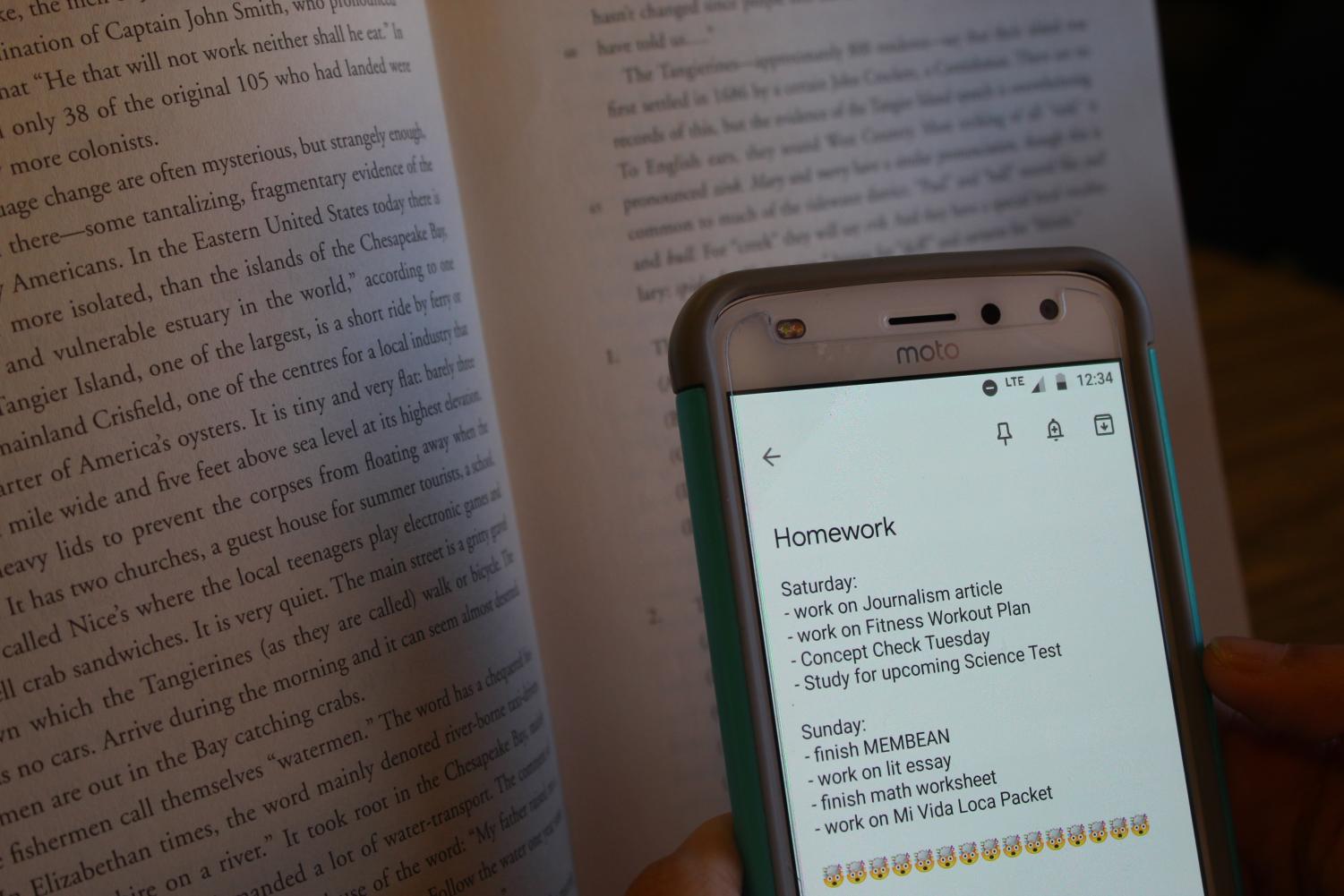
Teachers vs. Students: Weekend homework
Naisha Roy , Copy Editor
April 8, 2019
After climbing up the precipitous mountain that is the school week, Friday awaits students like a rewarding jewel. For many students, weekends are a refresh button on school, tests, assignments, and life. However, this idyllic weekend is a rarity for most high school students. Homework assigned over the weekend is one of the more controversial topics in education today, with opinions ranging all across the spectrum.
Pros and Cons
There is a schism between people who think weekend homework should be banned and those who think it should be mandatory; both sides have strong reasoning and arguments. The following chart shows the pros and cons of weekend homework:
The Teachers’ Take
Teachers at South Forsyth seem to have an opinion about weekend homework. Some think it is necessary, others optional, and others think it shouldn’t be assigned at all. In a weekend homework survey of teachers, about 20% of Sofo teachers give no homework over the weekend. Out of the 80% that do, almost 50% try to avoid it when necessary, and 29% only assign a couple of times per month. Most teachers try to avoid giving weekend homework unless necessary. They mostly assign it as extra practice or make-up work. According to Learning Lift Off, one huge reason for teachers giving weekend homework is to complete their lesson plans. Many teachers simply don’t have enough class time in order to complete their assigned plans and have no choice but to assign weekend homework.
I try to avoid it [weekend homework] because I think students need a mental break. Unless it is a project or preparation for a summative, there is small value academically.
— Kelsey Parent, Science Teacher
This view is shared by many teachers. Oftentimes, weekend homework won’t be assigned unless a test is on Monday. Even then the homework is often optional, like study guides. Bobby Scott, Headmaster of Perimeter School in Johns Creek, explains how the minimal homework policy at his school helped kids gain more quality time with their parents, improving mental health. Academically, while weekend homework does provide a review for the lessons of the previous week, many students procrastinate, doing it on Sunday night. This provides no academic value because students aren’t doing it to learn or review; they are doing it simply to get it done.
I think if the amount of homework given is minimal, it should impact both mental health and academics positively.
— Lisa Millsaps, Math teacher
This is a very valid perspective on the situation. According to goodschools.org , homework (as long as it’s minimal) can help improve time management, studying, and engagement skills. A little homework on the weekends means that students will have to figure out how to fit it in with their lives, just as adults have to do with their jobs (which often extend beyond the office). Education.com explains that “homework can involve parents in the school process, [..] allowing them to express positive attitudes toward the value of school success,” which means that students can, using homework, foster more connections with their parents, and improving their mental health.
Homework in general stresses out the students. I understand sometimes it is a necessary evil, but it should be the exception instead of the norm.
— Caye Enzweiler, Math Teacher
Describing homework as a “necessary evil” is probably one of the most common takes on the situation. Oftentimes, teachers need to assign homework in order to make sure students are prepared. However, this leads to additional stress for high school students who are already juggling work, college applications, relationships, and a lot more. The Washington Post wrote an article highlighting a school which started implementing homework-free weekends. Both students and teachers described it as a “breather” and “reprieve”. The exception and not the norm is a good rule of thumb for weekend homework. A few stressful weekends may help improve time management, but too many may open the door to depression and anxiety.
The responsible high school student will manage his activities so that he does a little homework each night and pays attention in class, so that he may have mostly free time on weekends.
— Caroline Cranfill, Math Teacher
The responsible high school student may be able to do all these activities. However, it takes lots of time to develop the responsibility and mindset required for this. A common solution would be to gradually increase the amount of weekend homework as students get more responsible and learn how to manage it. For example, teachers may start by assigning 5-10 minutes of homework per weekend and gradually increase their time as students grow, instead of assigning a huge amount all at once. Doing a little homework each night (or completing a subject each night) is also a good strategy, and responsible students will ask teachers for studying strategies, homework advice, and extensions.

The Students Side
Unlike the teachers at South Forsyth, the students seemed to have unanimous answers to the survey. The majority of them reported having weekend homework consecutively over the weeks. However, it was different for each subject. The following graphs show what weekend homework looks like at South:
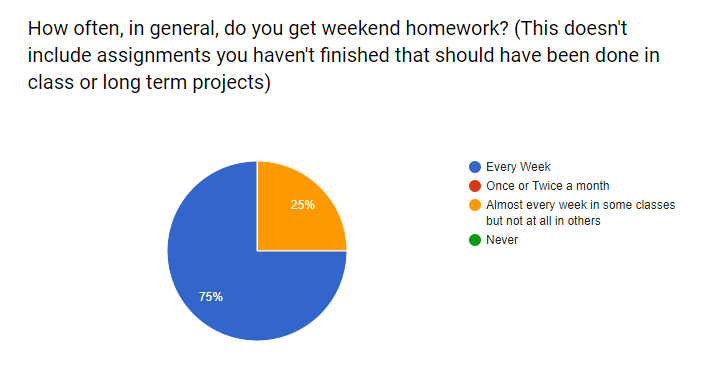
After looking at this survey, it is easy to see that for the average high school student, a homework-free weekend is a rarity. Math is the subject where students get the most weekend homework assigned. This is understandable because math is a class that requires intensive practice and skill building. However, students often have tests on Mondays, which means that they get overloaded with both studying, doing homework, and spending time with their family. In addition, many students feel that all their assignments can be overbearing when they have no choice but to extend the work onto their two-day reprieve. The biggest annoyance for students at South Forsyth is busy work. Homework can be useful at times, however if the assignment is lengthy or tedious, it gets lost in all the other pending work.
“[One suggestion for teachers would be] to not give as many or lengthy assignments, because we need a break from school; if we are bombarded with work from all classes it gets difficult,” says junior Arusha Khan.
School districts across the US have started implementing homework-free weekends as a method to aid their students’ stress and give them a breather. By having a balance of having homework on weekends occasionally , teachers can still fulfill their curriculum. These periodic breaks can give students relief from homework or extra time to catch up on assignments. Schools that have started incorporating this practice into their schedule include Watkins Mill High and Poolsville High in Maryland , Ramapo Indian Hills High School in New Jersey, Hinsdale High School in Chicago, and many more. South Forsyth can also utilize this strategy by offering students one or two completely homework-free weekends twice a year or so. We can make students’ lives easier by increasing motivation for all the other all-nighters. One strategy that the video to the right highlights is for students is to plan their homework. Students can also break down their homework and do a little each night to avoid the situation of weekend homework altogether, or at least prevent all the work from piling up to 11:59 on a Sunday night.
The Bird Feed • Copyright 2024 • FLEX WordPress Theme by SNO • Log in

March 30 Total solar eclipse appearing in North America on April 8
March 29 Trader Joe’s mini totes rise in popularity
March 28 Cherry Hill’s Spring Break Plan fails to recognize students and teachers
March 26 From Prosecutor to Lieutenant Governor: The Rise of Kimberly Guadagno in New Jersey Politics
March 23 The Class of 2025 prepares for Junior Prom
March 22 PODCAST: Eastside tries Crumbl Cookies (St. Paddy’s Day Edition)
March 21 The Class of 2024 raises money through a student vs staff basketball game
March 20 96th Academy Awards recap
March 18 Formula 1: on the rise
March 9 Golden Tickets and Golden Tricks: Willy’s Chocolate Experience

Dino Russo , Eastside Staff | March 30, 2024

Kaylee Yoon , Eastside Media Director | March 29, 2024
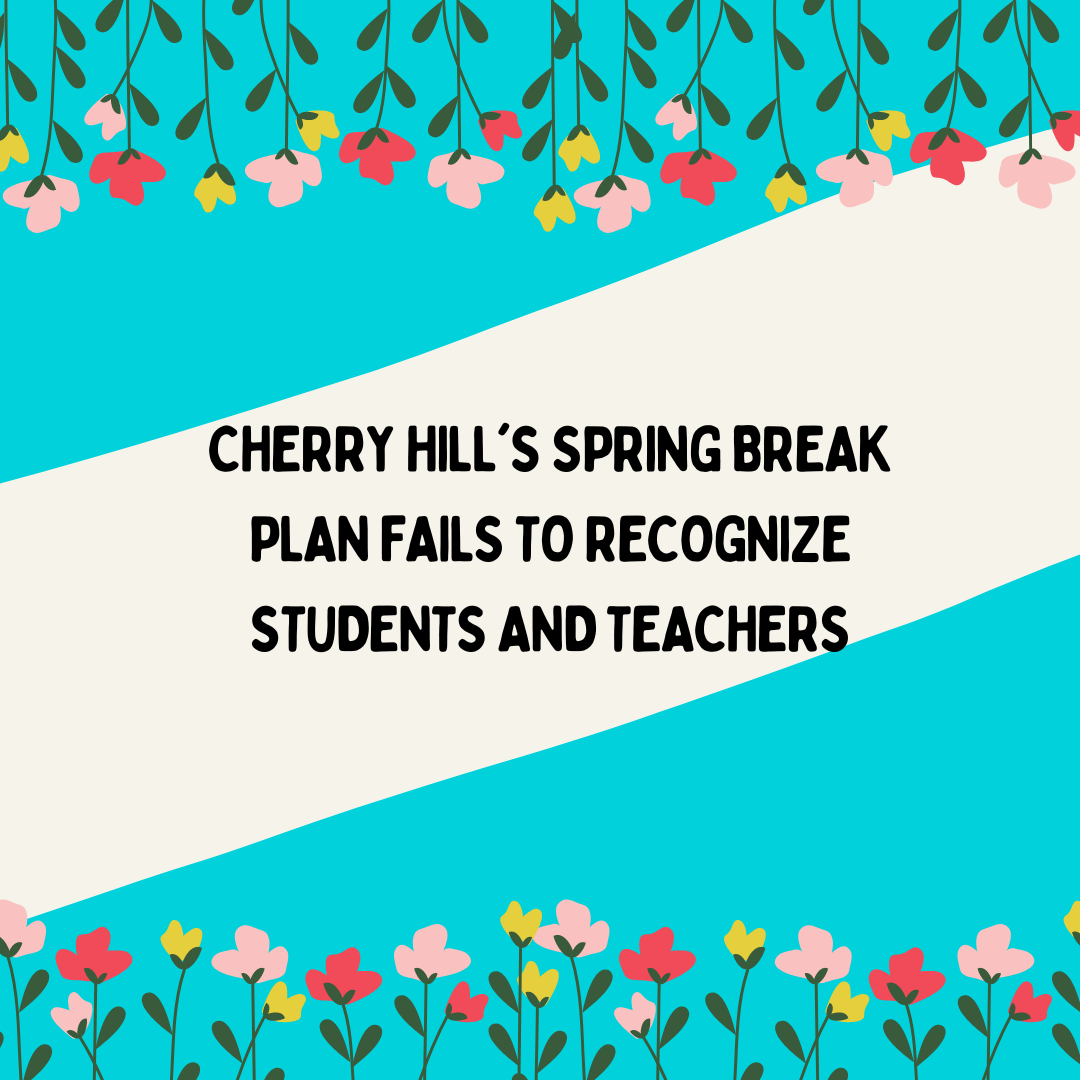
Gabrielle Levine , Eastside Community Editor | March 28, 2024

Matthew Rentezelas and Asher Boiskin | March 26, 2024

Ava Crawley , Eastside Features Editor | March 23, 2024
Homework should be reserved for weekdays only
During the school year, weekends are the only time students can have free time to spend with their family and friends, unlike weekdays when students are piled on with loads of homework given by teachers. Students should not have homework on the weekends because it interferes with other obligations such as the time you can spend relaxing with family, resting, and studying the knowledge previously learned that week.
On a typical school night, a high school student spends around two hours, at a minimum each night on homework, according to a survey from directhit.com. During weekdays students miss out on sleep, socializing, and crucial family time. If a person spends all their time doing homework Monday through Thursday, there should be a break on the weekend for time to catch up on things missed during the week.
During the week, children and family do not spend quality time together because of six hour school day, which is followed up by extracurricular activities and homework. Parents too long forward to weekend, since they have jobs during the week that demands much of their own time.
Although some believe that homework creates bonding time between parents and students, since parents can aid in their child’s school work, many other parents believe that homework is stressful on kids, and when it comes to the weekend, that time should go towards strengthening the family connection, not doing homework.
Many students are involved in extracurricular activities, sports or even work hours on school nights. This causes students to get home from school late. Kids don’t usually start homework right away; they take care of other priorities first, pushing their homework further into the night.
“After I get home from volleyball, I go right into the shower and eat dinner with my family. By the time everything’s settled, I can’t usually start my hours of homework till 8:30 p.m,” said Danielle Montgomery.
Many other students are put into this situation also cutting down on crucial needed sleep during the week to do well in school the next day. By having this same routine every weekday, when the weekend finally arrives, a student is run down on energy and missing out on a lot of sleep. Knowing that they are free of homework on
those days brings a huge relief and allows them to finally rest and regain energy.
Being assigned loads of homework during a time that you could rest, does not allow you to do so.
Some people may say that with better time management, the student can get his or her homework done in the time needed to still allow a decent night’s sleep. If extra time is needed on an assignment, they can squeeze it in at lunch or even in another class that allows some free time. When kids try to figure out how to get everything done, but fail, they get discouraged and their work ethic is affected. They have no choice but to stay up late into the evening making sure everything is done for the next day.
Another important argument is that students have other obligations such as church, Sunday school, or sporting events that if they have homework on the weekends, it would prevent them from attending any of them.
Some say this is a lesson that has to be learned, and gives good practice for
Future events, since an adult may be called into work, or have to finish something for a job on the weekends even though he or she has off. Having homework on the weekends as a teen helps you learn responsibility of when to choose work over other plans in the real world. Although it would be good practice for a kid, now isn’t the time to learn because they should enjoy their childhood while they still have it.
The School Newspaper of Cherry Hill High School East
Comments (36)
Your email address will not be published. Required fields are marked *
byrw • Jan 11, 2024 at 2:52 pm
i hope all of yall have a good easter
Random • Jan 3, 2024 at 6:14 pm
I needed this for a school project. Thank you so much for this information!
Hayden • May 31, 2023 at 12:17 pm
jo troto • May 10, 2023 at 3:49 pm
I think homework should not be on weekends because it is boring.
Emilee • Apr 17, 2023 at 4:35 pm
Thankyou for this and the funny thing is that i am ussing this for an argumentative essay that i sm working on on the weekend
Anonymous • Oct 4, 2022 at 12:01 pm
Thank you so much! This information helped me with a project we are doing at school. – Anonymous
Anonymous • Apr 5, 2022 at 1:01 pm
Thank you so much! This information helped me with a project we are doing at school. – Anonymous
STIFFY SPIDER-MAN • Mar 22, 2022 at 2:14 pm
Homework on the weekends is just not right bros
Bryant Holmes • Feb 7, 2022 at 12:45 pm
This is an amazing place to get information for the presentation I’m organizing, and all of your claims seem to be supported by a fair amount of good evidence and surveys. One of the main troubles I have with weekend homework is that by the time I’ve gotten home and taken a shower, I can barely even stand up, causing me to have to push back my homework back. I then take the Saturday to relax and rest for the next week of school, which the weekend is meant for, pushing the work back even further to Sunday. Thank you for helping me organize my presentation!
Alan • Jan 9, 2022 at 9:15 am
Great story! I could inspire from this book. I remember the first time when I wrote my essay, writers from https://pro-papers.com/do-my-homework-for-me told me that I could become a writer. To continue the work I had begun, such a book was not enough for me.
zaeem • Jan 6, 2022 at 3:04 pm
this is all good . I think your facts are true and trusted
foop • Dec 9, 2021 at 9:49 am
Bro thanks i needed this for a class
ewwdk • Oct 23, 2021 at 9:19 pm
lol I do 4 hours of homework every single day including weekends. I also have club meetings every week so by the time I am done with everything its already 2:00AM. My teachers are just slacking off and they teach us nothing in class. All they do is assign loads of homework expecting us to have our ten assignments turned in by Monday.
Adam Ball • Jul 26, 2021 at 11:24 am
Students should do homework Monday through Thursday not Monday through Friday. Homework didn’t belong in My Friday Routine. So my parents pulled me Out of Griffin in November 2004. Monday Through Friday Homework is too Stressful. It’s more Homework than anyone can Handle.
Vincezo Licavoli • May 26, 2021 at 4:38 pm
Parents cannot make their children do the homework. To my mind, children do not have to do homework not only while virtual school but always. Because they have to be tought at school, but not in home by their parents. Parents do not have to help their children with homework, it must be done by teachers at school. Homework brings only stress and tears. I also suffered from doing my child’s homework. But now i hve already solved this problem, and want to share the solution to other parents. Do not waste your freetime, just chooe some writing service and order your homework. They will do everything in the highest quality. You can try this out https://www.topwritersreview.com/reviews/pro-essay-writer/ . If you visit this website you will find a list of such services and reviews to them. Choose what you like.
Eliott • May 22, 2021 at 4:15 pm
my spanish teacher didn’t warn us that we had any work for the weekend, on Monday she asked if we submitted our ten assignments, thenn proceeded to give us 7 for the week, it all took me 32 hours to catch up, i also got behind on my other classes
paul ryan • May 20, 2021 at 6:26 pm
yeah I’m a middle school student with quite a bad track record of missing assignments, and I’ll admit that is due to laziness and procrastination. and when I have to work on them during the weekend and there’s also regular homework too, it’s just exponential stress.
(not showing my name) • May 2, 2021 at 11:30 am
Weekends are meant for relaxation. If teachers will give us homework on the weekends, why not just send us into school on Saturdays and Sundays? Those two options are on the same level in my opinion, since weekend homework typically takes MUCH longer than traditional weekday homework.
Yusuf • Apr 23, 2021 at 9:59 am
I agree with all of you. Having school on the weekends is annoying and stressful. I can’t watch a movie on Sundays without stressing on the fact that I have homework to do. I’m always staying up till 12 am to finish up. I want to relax on the weekends rather than stress and have anxiety. Yes, I get anxiety because of homework. I wish we could only be assigned homework on the weekdays but not Friday, since that’s basically the start of the weekend. Sometimes i’m so tired and there is so much work to do I just don’t even do it. I let it be a missing assignment for a couple of days while i’m finishing it up on the weekdays. But normally that wouldn’t even be an option to finish and get an extra day because the teachers have it marked missing. The only class where I didn’t get any homework was Spanish class, which didn’t give me stress because of my nice teacher.
mm • Apr 5, 2021 at 8:24 pm
Homework should not be on the weekend because that can lead you to be behind in class as a middle schooler it can affect metal qulitys and it does not help that there is homework on the weekend it does NOT make you smarter it just stresses people out and makes you get behind in class.
Lol no • Mar 21, 2021 at 8:28 pm
Wasn’t the whole point of weekends to not have a bunch of stuff to do? Why they gotta give so much homework I’m ok with school but I CAN’T DEAL WITH HOMEWORK ON THE WEEKENDS.
(who cares abt my name) • Feb 21, 2021 at 8:03 pm
Im doing homework non-stop all day every day even on weekends and I feel like it’s gonna go on forever they give me way too much homework at least 3-4 assignments every day and I have past due assignments also to do and its so insanely stressful and I can’t even do anything and I could barely play with my puppy and I never get a day off or free time like youtube or video games or something. And it takes me so long to do the assignments bc its really long and its super hard. Im in 7th grade.
( not gonna say my name ) • Feb 11, 2021 at 11:11 am
I dont think that after 5 days of working I should have more work on the day I’m suppose to be relaxing.
Beren • Jan 8, 2021 at 1:08 pm
I always do my homeworks
Amber Keller • Apr 16, 2020 at 9:20 pm
I think homework should be reserved on weekdays only because after a full 5 day school week you would like to have some free time and go to a friend’s house.
Can’tSayMyName • Apr 4, 2020 at 2:54 pm
I agree, it’s especially stressful when you not only have homework to make up from being sick, and you have to study for old and new tests.
Hazel • Mar 3, 2020 at 9:46 pm
I agree that homework should not be given on weekends. I often want to relax on the weekend and don’t want to do school work on my time off. Teachers need to realize that high schoolers have a social life and need a break from school on the weekends. Or we can have just a four day week at school 🙂
sandy • Feb 12, 2020 at 11:41 am
i wake up at six in the morning and drag my self out of bed just to go to school, then i come back and at least do one hour of homework, then i do housework, and then sleep and do all of that for the rest of the week. And especially on the weekends doing that will just take all the fun out of it.
Maddox • Feb 5, 2020 at 12:37 pm
Homework is so stressful i play sports and when i come home I have to do algebra homework for 2 hours. If i went on a family trip i could actually be able to catch up if there wasn’t extra homework from school.
matt • Jan 31, 2020 at 9:33 am
I agree with all of you. Hw on the weekends kills me bc I can’t go on any family trips.
devan • Jan 21, 2020 at 4:06 pm
i am a student and i think the idea of home work on the weekend is dumb its like never ending school and it gives to much worry about ” how will i finish all this”
Yung Anthony • Oct 22, 2019 at 5:47 am
I’m stressed bro.
Alexa Danley • Oct 14, 2019 at 11:34 pm
This particular weekend was a four day weekend, and I just finished everything up. It’s 1am. I have been working on it for the past 3 days for about 5 hours each day. I had soccer on Saturday and Monday, and church on Sunday.
Hamzah Shaif • Sep 1, 2019 at 10:05 pm
My son has been given of 24 pages of homework this 3 day weekend. He has put 24 hours so far into his homework, but he estimates tha tomorrow he will have 6 hours more at least of homwork. He has not been able to go on family trips, much less leave his room. The Ironic part is that it is Labor Day,
Matthias Scunter • Sep 25, 2018 at 10:44 am
Me: I have homework. Dad: idc come here boi Me: no!
bob davis • Nov 2, 2011 at 10:08 am
i think that there should be no hw on weekends because i am a student and it is very stressful to come home and have to do more school work. it is never ending school.

This Coming Weekend is a “No Homework” Family Weekend as Nutley Residents Celebrate Diwali
NUTLEY, NJ - This coming weekend, Nov 11 and Nov 12, is a "No Homework Family Weekend" as Nutley residents celebrate Diwali.
This year, the school district established several “No Homework Family Weekends" to allow families to celebrate holidays without homework crushing the spirit of the holiday.
The upcoming “No Homework Family Weekends" for the upcoming academic year and corresponding holidays are:
Nov. 11-12, 2023 Diwali (Nov. 12)
Dec. 7, 2023 Hanukkah (Sundown Dec. 7)
Dec. 22, 2023 Christmas Dec. 25
Feb. 10-11, 2024 Chinese New Year (Feb. 10)
March 23-24, 2024 Holi (March 25)
March 28, 2024 Easter (March 31)
April 13-14, 2024 Eid (April 9-10)
May 4-5, 2024 Yom Hashoah (May 4-5)
Previous "no homework family weekends" this academic year were:
Sept. 16-17, 2023 Rosh Hashanah (Sept 15-17)
Sept. 23-24, 2023 Yom Kippur (Sept 24-25)
The Nutley Public Schools calendar for the 2023-2024 academic year reflects 184 school days, with four snow days built-in. School will close for students after 180 days of school. Graduation for the class of 2024 is scheduled for June 20, 2024.
Related Article: Yom Kippur Now A Nutley Public Schools Holiday

By providing an email address. I agree to the Terms of Use and acknowledge that I have read the Privacy Policy .
Bill aims to give students ‘no homework’ weekends
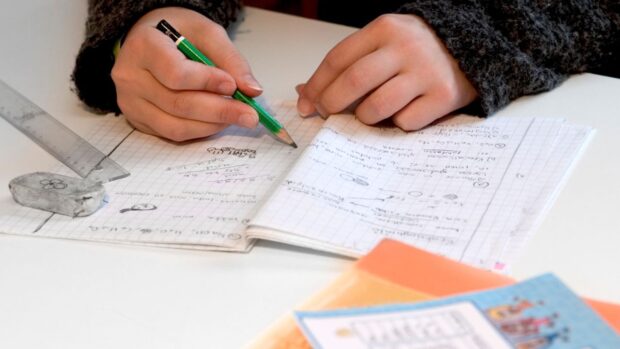
INQUIRER.net stock images
MANILA, Philippines — Saying children are “overworked” with 10 hours spent at school on weekdays, Tutok to Win Rep. Sam Versoza has filed House Bill No. 8243 — the proposed “No Homework Law” — to stop teachers from giving homework to elementary and high school students during weekends so as to allow students to “rest and recharge.”
A 2010 Department of Education memorandum circular advised teachers to limit the giving of homework to public elementary school students to a reasonable quantity on weekdays, while no homework is to be given on weekends. HB 8243 sought to institutionalize this for all elementary and high schools across the country.
Since the 17th Congress (2016-2019), lawmakers have tried to institute a no homework policy on weekends, but such measures remained pending before the House basic education and culture committee.
Versoza, in a privilege speech on Monday, said students work extra hours to accomplish their homework. In some instances, parents themselves would finish their children’s tasks.
“The Filipino youth are overworked and yet the Philippines is trailing behind other countries,” Versoza said in his privilege speech.
He cited recent reports that the average intelligence quotient (IQ) of Filipinos was 81.64, while the global average IQ was 100. The Philippines ranked 111th out of 200 countries in terms of average IQ.
“This is alarming and proves that the Philippines is in the middle of an educational crisis. If the system is not working, let us improve the system,” Versoza said.
He noted that Finland, China, South Korea, Japan, and other progressive nations already cut back on giving homework to students and that the Philippines should consider this as well.
Versoza said an hour of homework a day was “sufficient to achieve satisfactory results” and that increasing the number of hours for homework “may cause stress to students and their families.”
The lawmaker also pointed to the disparity between the rich and poor in completing school tasks.
“Kids from wealthier homes are more likely to have resources such as computers, internet connection, dedicated areas to do schoolwork, and parents who tend to be more educated and more available to help them with their homework,” Versoza said.
On the other hand, children from disadvantaged homes are more likely to take on after-school jobs, be at home without parents’ supervision, or take care of siblings instead of doing homework.
He also cited data from the Philippine Statistics Authority, which showed that the Philippines had the highest dropout rate among Southeast Asian countries, with a lack of interest in school as one of the reasons cited.
Subscribe to our daily newsletter
“This only shows that school is not fun anymore,” Versoza said.
RELATED STORIES
Deped to issue ‘more precise’ guidelines on students’ homework policy, homework ban to promote ‘holistic approach’ among families — solon, deped: no-homework plan to help students attain school-life balance.
News that matters
Disclaimer: Comments do not represent the views of INQUIRER.net. We reserve the right to exclude comments which are inconsistent with our editorial standards. FULL DISCLAIMER
© copyright 1997-2024 inquirer.net | all rights reserved.
We use cookies to ensure you get the best experience on our website. By continuing, you are agreeing to our use of cookies. To find out more, please click this link.
- 2022-2023 CSPA Crown Award Finalist

Common Sense

No more giving school work to students on weekends
Myiesha Ameen , staff writer | January 5, 2022

Photo by Jake Dolan
Senior Nideesh Shanmugam Bhuvaneswari uses his lunch period on Jan. 5 to study for his upcoming AP Calculus AB test.
After five, roughly seven-hour-long school days, on top of the time it takes to complete homework, students are left feeling exhausted and looking forward to the weekend. But when they get there, a problem arises: they have to do even more homework. Students should not get any homework on weekends. They should instead be able to do other fun activities and not have to worry about school. They deserve a stress-free weekend after a stress-filled week.
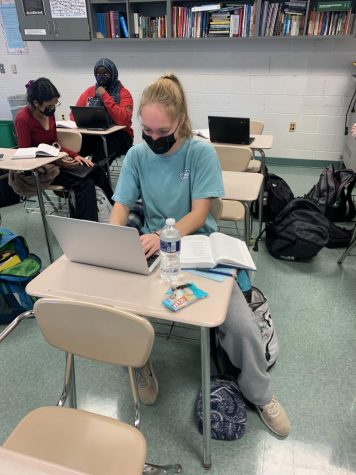
Students adjust to increased homework

Transition to in-person workload proves struggle for students
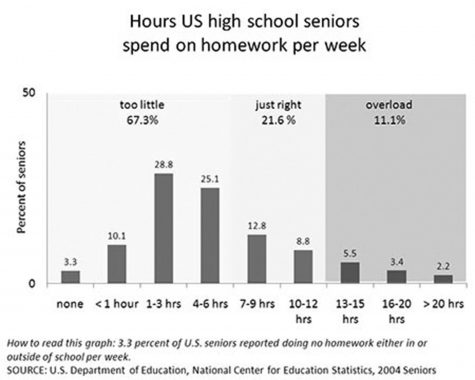
Large workloads put student mental well-being at risk
It could be viewed that students should have homework on weekends so that they don’t forget what they learned over the weekend, or to prepare them for what they will learn when they come back. Teachers may also argue that if the students don’t get homework on weekends it would mean extra homework on weekdays.
Sure these are good points and true in some scenarios, but there are other ways to solve this problem that don’t include homework on weekends. For example, teachers could review quickly at the start of class. Memory works in a way that once you learn something it’ll still be in your brain, it just needs to be brought back out. This is a better method because students deserve to get their full break on the weekend.
It’s OK for teachers to assign work that students may have to finish over the weekend if they didn’t finish in the time they were originally given, but they should not assign homework on Friday that is due Monday. Additionally, if homework on weekends is potentially exhausting the mental health of students and stressing them out then it should be eliminated.
Often it’s said how kids used to enjoy school and would want to go, but as they got older, they didn’t feel the same way. Of course, they may feel this way because classes are harder, but a bigger reason is the amount of homework they have to do. On weekdays it’s understandable, but on weekends it is not, as they are supposed to be the two days students get off from school.
On average, students get at least three to four hours worth of homework on each school night. Students work hard enough on school days and school nights that they deserve two days where they don’t have to think about school, unless they have a test or quiz the next day.
Purposefully giving work for Friday night or the weekend should not be allowed as it’s unfair and students do not deserve it. Students deserve no homework weekends for all the hard work they put into their classes and assignments during the week. Teachers especially know how hard their students work since they are the ones who assign the work. Teachers may be working over the weekend, but that doesn’t mean students deserve to do the same.
Your donation will support the student journalists of Thomas S. Wootton High School. Your contribution will allow us to purchase equipment and cover our annual website hosting costs.

Harmful effects of body positivity: the correlation between beauty and self worth

World languages: Are there enough options to choose from at this school?
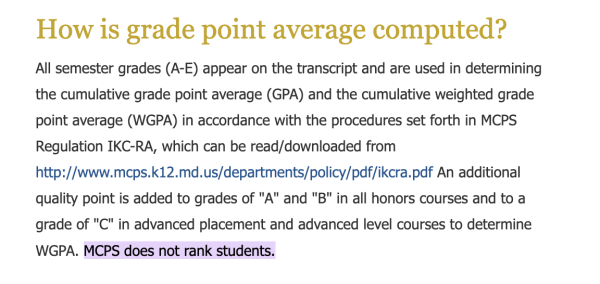
Class ranks foster overly competitive, stress-inducing school environment for students

Protesting: the foundation of democracy
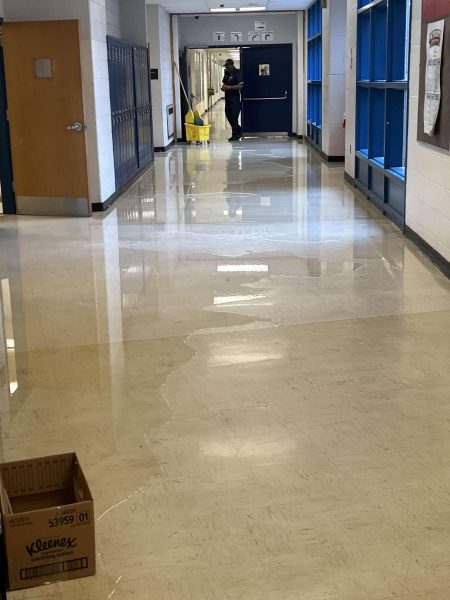
Time for changes to be made in this building

Extracurricular activities: more than just resume builders

Museums remain valuable to modern society

The New York Yankees; Best fandom in sports?

Caffeine: The world’s most-used drug

Abbreviated schedules: Solution to unneeded classes
The Student News Site of Thomas S. Wootton High School
- Print Edition
- Advertising
- Subscriptions
- Editorial Policy
- Staff Profiles
- Scores and Schedules
Comments (0)
Cancel reply
Your email address will not be published. Required fields are marked *

Home » Tips for Teachers » 7 Research-Based Reasons Why Students Should Not Have Homework: Academic Insights, Opposing Perspectives & Alternatives
7 Research-Based Reasons Why Students Should Not Have Homework: Academic Insights, Opposing Perspectives & Alternatives
In recent years, the question of why students should not have homework has become a topic of intense debate among educators, parents, and students themselves. This discussion stems from a growing body of research that challenges the traditional view of homework as an essential component of academic success. The notion that homework is an integral part of learning is being reevaluated in light of new findings about its effectiveness and impact on students’ overall well-being.

The push against homework is not just about the hours spent on completing assignments; it’s about rethinking the role of education in fostering the well-rounded development of young individuals. Critics argue that homework, particularly in excessive amounts, can lead to negative outcomes such as stress, burnout, and a diminished love for learning. Moreover, it often disproportionately affects students from disadvantaged backgrounds, exacerbating educational inequities. The debate also highlights the importance of allowing children to have enough free time for play, exploration, and family interaction, which are crucial for their social and emotional development.
Checking 13yo’s math homework & I have just one question. I can catch mistakes & help her correct. But what do kids do when their parent isn’t an Algebra teacher? Answer: They get frustrated. Quit. Get a bad grade. Think they aren’t good at math. How is homework fair??? — Jay Wamsted (@JayWamsted) March 24, 2022
As we delve into this discussion, we explore various facets of why reducing or even eliminating homework could be beneficial. We consider the research, weigh the pros and cons, and examine alternative approaches to traditional homework that can enhance learning without overburdening students.
Once you’ve finished this article, you’ll know:
- Insights from Teachers and Education Industry Experts →
- 7 Reasons Why Students Should Not Have Homework →
- Opposing Views on Homework Practices →
- Exploring Alternatives to Homework →
Insights from Teachers and Education Industry Experts: Diverse Perspectives on Homework
In the ongoing conversation about the role and impact of homework in education, the perspectives of those directly involved in the teaching process are invaluable. Teachers and education industry experts bring a wealth of experience and insights from the front lines of learning. Their viewpoints, shaped by years of interaction with students and a deep understanding of educational methodologies, offer a critical lens through which we can evaluate the effectiveness and necessity of homework in our current educational paradigm.
Check out this video featuring Courtney White, a high school language arts teacher who gained widespread attention for her explanation of why she chooses not to assign homework.
Here are the insights and opinions from various experts in the educational field on this topic:
“I teach 1st grade. I had parents ask for homework. I explained that I don’t give homework. Home time is family time. Time to play, cook, explore and spend time together. I do send books home, but there is no requirement or checklist for reading them. Read them, enjoy them, and return them when your child is ready for more. I explained that as a parent myself, I know they are busy—and what a waste of energy it is to sit and force their kids to do work at home—when they could use that time to form relationships and build a loving home. Something kids need more than a few math problems a week.” — Colleen S. , 1st grade teacher
“The lasting educational value of homework at that age is not proven. A kid says the times tables [at school] because he studied the times tables last night. But over a long period of time, a kid who is drilled on the times tables at school, rather than as homework, will also memorize their times tables. We are worried about young children and their social emotional learning. And that has to do with physical activity, it has to do with playing with peers, it has to do with family time. All of those are very important and can be removed by too much homework.” — David Bloomfield , education professor at Brooklyn College and the City University of New York graduate center
“Homework in primary school has an effect of around zero. In high school it’s larger. (…) Which is why we need to get it right. Not why we need to get rid of it. It’s one of those lower hanging fruit that we should be looking in our primary schools to say, ‘Is it really making a difference?’” — John Hattie , professor
”Many kids are working as many hours as their overscheduled parents and it is taking a toll – psychologically and in many other ways too. We see kids getting up hours before school starts just to get their homework done from the night before… While homework may give kids one more responsibility, it ignores the fact that kids do not need to grow up and become adults at ages 10 or 12. With schools cutting recess time or eliminating playgrounds, kids absorb every single stress there is, only on an even higher level. Their brains and bodies need time to be curious, have fun, be creative and just be a kid.” — Pat Wayman, teacher and CEO of HowtoLearn.com
7 Reasons Why Students Should Not Have Homework
Let’s delve into the reasons against assigning homework to students. Examining these arguments offers important perspectives on the wider educational and developmental consequences of homework practices.
1. Elevated Stress and Health Consequences

The ongoing debate about homework often focuses on its educational value, but a vital aspect that cannot be overlooked is the significant stress and health consequences it brings to students. In the context of American life, where approximately 70% of people report moderate or extreme stress due to various factors like mass shootings, healthcare affordability, discrimination, racism, sexual harassment, climate change, presidential elections, and the need to stay informed, the additional burden of homework further exacerbates this stress, particularly among students.
Key findings and statistics reveal a worrying trend:
- Overwhelming Student Stress: A staggering 72% of students report being often or always stressed over schoolwork, with a concerning 82% experiencing physical symptoms due to this stress.
- Serious Health Issues: Symptoms linked to homework stress include sleep deprivation, headaches, exhaustion, weight loss, and stomach problems.
- Sleep Deprivation: Despite the National Sleep Foundation recommending 8.5 to 9.25 hours of sleep for healthy adolescent development, students average just 6.80 hours of sleep on school nights. About 68% of students stated that schoolwork often or always prevented them from getting enough sleep, which is critical for their physical and mental health.
- Turning to Unhealthy Coping Mechanisms: Alarmingly, the pressure from excessive homework has led some students to turn to alcohol and drugs as a way to cope with stress.
This data paints a concerning picture. Students, already navigating a world filled with various stressors, find themselves further burdened by homework demands. The direct correlation between excessive homework and health issues indicates a need for reevaluation. The goal should be to ensure that homework if assigned, adds value to students’ learning experiences without compromising their health and well-being.
By addressing the issue of homework-related stress and health consequences, we can take a significant step toward creating a more nurturing and effective educational environment. This environment would not only prioritize academic achievement but also the overall well-being and happiness of students, preparing them for a balanced and healthy life both inside and outside the classroom.
2. Inequitable Impact and Socioeconomic Disparities

In the discourse surrounding educational equity, homework emerges as a factor exacerbating socioeconomic disparities, particularly affecting students from lower-income families and those with less supportive home environments. While homework is often justified as a means to raise academic standards and promote equity, its real-world impact tells a different story.
The inequitable burden of homework becomes starkly evident when considering the resources required to complete it, especially in the digital age. Homework today often necessitates a computer and internet access – resources not readily available to all students. This digital divide significantly disadvantages students from lower-income backgrounds, deepening the chasm between them and their more affluent peers.
Key points highlighting the disparities:
- Digital Inequity: Many students lack access to necessary technology for homework, with low-income families disproportionately affected.
- Impact of COVID-19: The pandemic exacerbated these disparities as education shifted online, revealing the extent of the digital divide.
- Educational Outcomes Tied to Income: A critical indicator of college success is linked more to family income levels than to rigorous academic preparation. Research indicates that while 77% of students from high-income families graduate from highly competitive colleges, only 9% from low-income families achieve the same . This disparity suggests that the pressure of heavy homework loads, rather than leveling the playing field, may actually hinder the chances of success for less affluent students.
Moreover, the approach to homework varies significantly across different types of schools. While some rigorous private and preparatory schools in both marginalized and affluent communities assign extreme levels of homework, many progressive schools focusing on holistic learning and self-actualization opt for no homework, yet achieve similar levels of college and career success. This contrast raises questions about the efficacy and necessity of heavy homework loads in achieving educational outcomes.
The issue of homework and its inequitable impact is not just an academic concern; it is a reflection of broader societal inequalities. By continuing practices that disproportionately burden students from less privileged backgrounds, the educational system inadvertently perpetuates the very disparities it seeks to overcome.
3. Negative Impact on Family Dynamics

Homework, a staple of the educational system, is often perceived as a necessary tool for academic reinforcement. However, its impact extends beyond the realm of academics, significantly affecting family dynamics. The negative repercussions of homework on the home environment have become increasingly evident, revealing a troubling pattern that can lead to conflict, mental health issues, and domestic friction.
A study conducted in 2015 involving 1,100 parents sheds light on the strain homework places on family relationships. The findings are telling:
- Increased Likelihood of Conflicts: Families where parents did not have a college degree were 200% more likely to experience fights over homework.
- Misinterpretations and Misunderstandings: Parents often misinterpret their children’s difficulties with homework as a lack of attention in school, leading to feelings of frustration and mistrust on both sides.
- Discriminatory Impact: The research concluded that the current approach to homework disproportionately affects children whose parents have lower educational backgrounds, speak English as a second language, or belong to lower-income groups.
The issue is not confined to specific demographics but is a widespread concern. Samantha Hulsman, a teacher featured in Education Week Teacher , shared her personal experience with the toll that homework can take on family time. She observed that a seemingly simple 30-minute assignment could escalate into a three-hour ordeal, causing stress and strife between parents and children. Hulsman’s insights challenge the traditional mindset about homework, highlighting a shift towards the need for skills such as collaboration and problem-solving over rote memorization of facts.
The need of the hour is to reassess the role and amount of homework assigned to students. It’s imperative to find a balance that facilitates learning and growth without compromising the well-being of the family unit. Such a reassessment would not only aid in reducing domestic conflicts but also contribute to a more supportive and nurturing environment for children’s overall development.
4. Consumption of Free Time

In recent years, a growing chorus of voices has raised concerns about the excessive burden of homework on students, emphasizing how it consumes their free time and impedes their overall well-being. The issue is not just the quantity of homework, but its encroachment on time that could be used for personal growth, relaxation, and family bonding.
Authors Sara Bennett and Nancy Kalish , in their book “The Case Against Homework,” offer an insightful window into the lives of families grappling with the demands of excessive homework. They share stories from numerous interviews conducted in the mid-2000s, highlighting the universal struggle faced by families across different demographics. A poignant account from a parent in Menlo Park, California, describes nightly sessions extending until 11 p.m., filled with stress and frustration, leading to a soured attitude towards school in both the child and the parent. This narrative is not isolated, as about one-third of the families interviewed expressed feeling crushed by the overwhelming workload.
Key points of concern:
- Excessive Time Commitment: Students, on average, spend over 6 hours in school each day, and homework adds significantly to this time, leaving little room for other activities.
- Impact on Extracurricular Activities: Homework infringes upon time for sports, music, art, and other enriching experiences, which are as crucial as academic courses.
- Stifling Creativity and Self-Discovery: The constant pressure of homework limits opportunities for students to explore their interests and learn new skills independently.
The National Education Association (NEA) and the National PTA (NPTA) recommend a “10 minutes of homework per grade level” standard, suggesting a more balanced approach. However, the reality often far exceeds this guideline, particularly for older students. The impact of this overreach is profound, affecting not just academic performance but also students’ attitudes toward school, their self-confidence, social skills, and overall quality of life.
Furthermore, the intense homework routine’s effectiveness is doubtful, as it can overwhelm students and detract from the joy of learning. Effective learning builds on prior knowledge in an engaging way, but excessive homework in a home setting may be irrelevant and uninteresting. The key challenge is balancing homework to enhance learning without overburdening students, allowing time for holistic growth and activities beyond academics. It’s crucial to reassess homework policies to support well-rounded development.
5. Challenges for Students with Learning Disabilities

Homework, a standard educational tool, poses unique challenges for students with learning disabilities, often leading to a frustrating and disheartening experience. These challenges go beyond the typical struggles faced by most students and can significantly impede their educational progress and emotional well-being.
Child psychologist Kenneth Barish’s insights in Psychology Today shed light on the complex relationship between homework and students with learning disabilities:
- Homework as a Painful Endeavor: For students with learning disabilities, completing homework can be likened to “running with a sprained ankle.” It’s a task that, while doable, is fraught with difficulty and discomfort.
- Misconceptions about Laziness: Often, children who struggle with homework are perceived as lazy. However, Barish emphasizes that these students are more likely to be frustrated, discouraged, or anxious rather than unmotivated.
- Limited Improvement in School Performance: The battles over homework rarely translate into significant improvement in school for these children, challenging the conventional notion of homework as universally beneficial.
These points highlight the need for a tailored approach to homework for students with learning disabilities. It’s crucial to recognize that the traditional homework model may not be the most effective or appropriate method for facilitating their learning. Instead, alternative strategies that accommodate their unique needs and learning styles should be considered.
In conclusion, the conventional homework paradigm needs reevaluation, particularly concerning students with learning disabilities. By understanding and addressing their unique challenges, educators can create a more inclusive and supportive educational environment. This approach not only aids in their academic growth but also nurtures their confidence and overall development, ensuring that they receive an equitable and empathetic educational experience.
6. Critique of Underlying Assumptions about Learning

The longstanding belief in the educational sphere that more homework automatically translates to more learning is increasingly being challenged. Critics argue that this assumption is not only flawed but also unsupported by solid evidence, questioning the efficacy of homework as an effective learning tool.
Alfie Kohn , a prominent critic of homework, aptly compares students to vending machines in this context, suggesting that the expectation of inserting an assignment and automatically getting out of learning is misguided. Kohn goes further, labeling homework as the “greatest single extinguisher of children’s curiosity.” This critique highlights a fundamental issue: the potential of homework to stifle the natural inquisitiveness and love for learning in children.
The lack of concrete evidence supporting the effectiveness of homework is evident in various studies:
- Marginal Effectiveness of Homework: A study involving 28,051 high school seniors found that the effectiveness of homework was marginal, and in some cases, it was counterproductive, leading to more academic problems than solutions.
- No Correlation with Academic Achievement: Research in “ National Differences, Global Similarities ” showed no correlation between homework and academic achievement in elementary students, and any positive correlation in middle or high school diminished with increasing homework loads.
- Increased Academic Pressure: The Teachers College Record published findings that homework adds to academic pressure and societal stress, exacerbating performance gaps between students from different socioeconomic backgrounds.
These findings bring to light several critical points:
- Quality Over Quantity: According to a recent article in Monitor on Psychology , experts concur that the quality of homework assignments, along with the quality of instruction, student motivation, and inherent ability, is more crucial for academic success than the quantity of homework.
- Counterproductive Nature of Excessive Homework: Excessive homework can lead to more academic challenges, particularly for students already facing pressures from other aspects of their lives.
- Societal Stress and Performance Gaps: Homework can intensify societal stress and widen the academic performance divide.
The emerging consensus from these studies suggests that the traditional approach to homework needs rethinking. Rather than focusing on the quantity of assignments, educators should consider the quality and relevance of homework, ensuring it truly contributes to learning and development. This reassessment is crucial for fostering an educational environment that nurtures curiosity and a love for learning, rather than extinguishing it.
7. Issues with Homework Enforcement, Reliability, and Temptation to Cheat

In the academic realm, the enforcement of homework is a subject of ongoing debate, primarily due to its implications on student integrity and the true value of assignments. The challenges associated with homework enforcement often lead to unintended yet significant issues, such as cheating, copying, and a general undermining of educational values.
Key points highlighting enforcement challenges:
- Difficulty in Enforcing Completion: Ensuring that students complete their homework can be a complex task, and not completing homework does not always correlate with poor grades.
- Reliability of Homework Practice: The reliability of homework as a practice tool is undermined when students, either out of desperation or lack of understanding, choose shortcuts over genuine learning. This approach can lead to the opposite of the intended effect, especially when assignments are not well-aligned with the students’ learning levels or interests.
- Temptation to Cheat: The issue of cheating is particularly troubling. According to a report by The Chronicle of Higher Education , under the pressure of at-home assignments, many students turn to copying others’ work, plagiarizing, or using creative technological “hacks.” This tendency not only questions the integrity of the learning process but also reflects the extreme stress that homework can induce.
- Parental Involvement in Completion: As noted in The American Journal of Family Therapy , this raises concerns about the authenticity of the work submitted. When parents complete assignments for their children, it not only deprives the students of the opportunity to learn but also distorts the purpose of homework as a learning aid.
In conclusion, the challenges of homework enforcement present a complex problem that requires careful consideration. The focus should shift towards creating meaningful, manageable, and quality-driven assignments that encourage genuine learning and integrity, rather than overwhelming students and prompting counterproductive behaviors.
Addressing Opposing Views on Homework Practices
While opinions on homework policies are diverse, understanding different viewpoints is crucial. In the following sections, we will examine common arguments supporting homework assignments, along with counterarguments that offer alternative perspectives on this educational practice.
1. Improvement of Academic Performance

Homework is commonly perceived as a means to enhance academic performance, with the belief that it directly contributes to better grades and test scores. This view posits that through homework, students reinforce what they learn in class, leading to improved understanding and retention, which ultimately translates into higher academic achievement.
However, the question of why students should not have homework becomes pertinent when considering the complex relationship between homework and academic performance. Studies have indicated that excessive homework doesn’t necessarily equate to higher grades or test scores. Instead, too much homework can backfire, leading to stress and fatigue that adversely affect a student’s performance. Reuters highlights an intriguing correlation suggesting that physical activity may be more conducive to academic success than additional homework, underscoring the importance of a holistic approach to education that prioritizes both physical and mental well-being for enhanced academic outcomes.
2. Reinforcement of Learning

Homework is traditionally viewed as a tool to reinforce classroom learning, enabling students to practice and retain material. However, research suggests its effectiveness is ambiguous. In instances where homework is well-aligned with students’ abilities and classroom teachings, it can indeed be beneficial. Particularly for younger students , excessive homework can cause burnout and a loss of interest in learning, counteracting its intended purpose.
Furthermore, when homework surpasses a student’s capability, it may induce frustration and confusion rather than aid in learning. This challenges the notion that more homework invariably leads to better understanding and retention of educational content.
3. Development of Time Management Skills

Homework is often considered a crucial tool in helping students develop important life skills such as time management and organization. The idea is that by regularly completing assignments, students learn to allocate their time efficiently and organize their tasks effectively, skills that are invaluable in both academic and personal life.
However, the impact of homework on developing these skills is not always positive. For younger students, especially, an overwhelming amount of homework can be more of a hindrance than a help. Instead of fostering time management and organizational skills, an excessive workload often leads to stress and anxiety . These negative effects can impede the learning process and make it difficult for students to manage their time and tasks effectively, contradicting the original purpose of homework.
4. Preparation for Future Academic Challenges

Homework is often touted as a preparatory tool for future academic challenges that students will encounter in higher education and their professional lives. The argument is that by tackling homework, students build a foundation of knowledge and skills necessary for success in more advanced studies and in the workforce, fostering a sense of readiness and confidence.
Contrarily, an excessive homework load, especially from a young age, can have the opposite effect . It can instill a negative attitude towards education, dampening students’ enthusiasm and willingness to embrace future academic challenges. Overburdening students with homework risks disengagement and loss of interest, thereby defeating the purpose of preparing them for future challenges. Striking a balance in the amount and complexity of homework is crucial to maintaining student engagement and fostering a positive attitude towards ongoing learning.
5. Parental Involvement in Education

Homework often acts as a vital link connecting parents to their child’s educational journey, offering insights into the school’s curriculum and their child’s learning process. This involvement is key in fostering a supportive home environment and encouraging a collaborative relationship between parents and the school. When parents understand and engage with what their children are learning, it can significantly enhance the educational experience for the child.
However, the line between involvement and over-involvement is thin. When parents excessively intervene by completing their child’s homework, it can have adverse effects . Such actions not only diminish the educational value of homework but also rob children of the opportunity to develop problem-solving skills and independence. This over-involvement, coupled with disparities in parental ability to assist due to variations in time, knowledge, or resources, may lead to unequal educational outcomes, underlining the importance of a balanced approach to parental participation in homework.
Exploring Alternatives to Homework and Finding a Middle Ground

In the ongoing debate about the role of homework in education, it’s essential to consider viable alternatives and strategies to minimize its burden. While completely eliminating homework may not be feasible for all educators, there are several effective methods to reduce its impact and offer more engaging, student-friendly approaches to learning.
Alternatives to Traditional Homework
- Project-Based Learning: This method focuses on hands-on, long-term projects where students explore real-world problems. It encourages creativity, critical thinking, and collaborative skills, offering a more engaging and practical learning experience than traditional homework. For creative ideas on school projects, especially related to the solar system, be sure to explore our dedicated article on solar system projects .
- Flipped Classrooms: Here, students are introduced to new content through videos or reading materials at home and then use class time for interactive activities. This approach allows for more personalized and active learning during school hours.
- Reading for Pleasure: Encouraging students to read books of their choice can foster a love for reading and improve literacy skills without the pressure of traditional homework assignments. This approach is exemplified by Marion County, Florida , where public schools implemented a no-homework policy for elementary students. Instead, they are encouraged to read nightly for 20 minutes . Superintendent Heidi Maier’s decision was influenced by research showing that while homework offers minimal benefit to young students, regular reading significantly boosts their learning. For book recommendations tailored to middle school students, take a look at our specially curated article .
Ideas for Minimizing Homework
- Limiting Homework Quantity: Adhering to guidelines like the “ 10-minute rule ” (10 minutes of homework per grade level per night) can help ensure that homework does not become overwhelming.
- Quality Over Quantity: Focus on assigning meaningful homework that is directly relevant to what is being taught in class, ensuring it adds value to students’ learning.
- Homework Menus: Offering students a choice of assignments can cater to diverse learning styles and interests, making homework more engaging and personalized.
- Integrating Technology: Utilizing educational apps and online platforms can make homework more interactive and enjoyable, while also providing immediate feedback to students. To gain deeper insights into the role of technology in learning environments, explore our articles discussing the benefits of incorporating technology in classrooms and a comprehensive list of educational VR apps . These resources will provide you with valuable information on how technology can enhance the educational experience.
For teachers who are not ready to fully eliminate homework, these strategies offer a compromise, ensuring that homework supports rather than hinders student learning. By focusing on quality, relevance, and student engagement, educators can transform homework from a chore into a meaningful component of education that genuinely contributes to students’ academic growth and personal development. In this way, we can move towards a more balanced and student-centric approach to learning, both in and out of the classroom.
Useful Resources
- Is homework a good idea or not? by BBC
- The Great Homework Debate: What’s Getting Lost in the Hype
- Alternative Homework Ideas
The evidence and arguments presented in the discussion of why students should not have homework call for a significant shift in homework practices. It’s time for educators and policymakers to rethink and reformulate homework strategies, focusing on enhancing the quality, relevance, and balance of assignments. By doing so, we can create a more equitable, effective, and student-friendly educational environment that fosters learning, well-being, and holistic development.
- “Here’s what an education expert says about that viral ‘no-homework’ policy”, Insider
- “John Hattie on BBC Radio 4: Homework in primary school has an effect of zero”, Visible Learning
- HowtoLearn.com
- “Time Spent On Homework Statistics [Fresh Research]”, Gitnux
- “Stress in America”, American Psychological Association (APA)
- “Homework hurts high-achieving students, study says”, The Washington Post
- “National Sleep Foundation’s updated sleep duration recommendations: final report”, National Library of Medicine
- “A multi-method exploratory study of stress, coping, and substance use among high school youth in private schools”, Frontiers
- “The Digital Revolution is Leaving Poorer Kids Behind”, Statista
- “The digital divide has left millions of school kids behind”, CNET
- “The Digital Divide: What It Is, and What’s Being Done to Close It”, Investopedia
- “COVID-19 exposed the digital divide. Here’s how we can close it”, World Economic Forum
- “PBS NewsHour: Biggest Predictor of College Success is Family Income”, America’s Promise Alliance
- “Homework and Family Stress: With Consideration of Parents’ Self Confidence, Educational Level, and Cultural Background”, Taylor & Francis Online
- “What Do You Mean My Kid Doesn’t Have Homework?”, EducationWeek
- “Excerpt From The Case Against Homework”, Penguin Random House Canada
- “How much homework is too much?”, neaToday
- “The Nation’s Report Card: A First Look: 2013 Mathematics and Reading”, National Center for Education Statistics
- “Battles Over Homework: Advice For Parents”, Psychology Today
- “How Homework Is Destroying Teens’ Health”, The Lion’s Roar
- “ Breaking the Homework Habit”, Education World
- “Testing a model of school learning: Direct and indirect effects on academic achievement”, ScienceDirect
- “National Differences, Global Similarities: World Culture and the Future of Schooling”, Stanford University Press
- “When school goes home: Some problems in the organization of homework”, APA PsycNet
- “Is homework a necessary evil?”, APA PsycNet
- “Epidemic of copying homework catalyzed by technology”, Redwood Bark
- “High-Tech Cheating Abounds, and Professors Bear Some Blame”, The Chronicle of Higher Education
- “Homework and Family Stress: With Consideration of Parents’ Self Confidence, Educational Level, and Cultural Background”, ResearchGate
- “Kids who get moving may also get better grades”, Reuters
- “Does Homework Improve Academic Achievement? A Synthesis of Research, 1987–2003”, SageJournals
- “Is it time to get rid of homework?”, USAToday
- “Stanford research shows pitfalls of homework”, Stanford
- “Florida school district bans homework, replaces it with daily reading”, USAToday
- “Encouraging Students to Read: Tips for High School Teachers”, wgu.edu
- Recent Posts

Simona Johnes is the visionary being the creation of our project. Johnes spent much of her career in the classroom working with students. And, after many years in the classroom, Johnes became a principal.
- Exploring the Evidence: 7 Comprehensive Reasons Why School Should Start Later for Enhanced Student Well-being and Academic Success - February 15, 2024
- Why Students Should Learn a Second Language for Future Success: Exploring the 7 Benefits - February 12, 2024
- 9 Reasons Why Teachers Should Accept Late Work: Balancing Discipline and Flexibility in Education - January 31, 2024
Leave a Comment Cancel reply
Save my name, email, and website in this browser for the next time I comment.
- Head of School
- Lower School Principal
- Middle School Principal
- Upper School Principal
- Arts Director
- Athletic Director
- College Counseling Director
- Libraries Director
- Parent Association President
- Horizons Director
- Culture & Community Director

No homework zone in effect this weekend: Some thoughts and a challenge

So here’s some good news for our students: This weekend — beginning on September 27 — is a No Homework weekend.
Additionally, Monday, September 30 and Tuesday, October 1 are No Homework evenings as well.
Years ago, we set up No Homework zones on certain weekends to give students a break and create space for families to do special things.
We also have given No Homework zones around Rosh Hashanah and Yom Kippur, as those important Jewish holidays impact a large number of our students. Please know that families can always let their principal know to ask teachers to excuse homework for other special family events or religious celebrations not noted on our calendar. When we have these No Homework zones, it is very typical for me to get emails or calls from parents who note how wonderful it was to be able to sit down and have a family meal without students feeling they needed to run off to do homework.
So my question for all of our CA families for the next few days: How do you want to take advantage of this?
This is an opportunity for families to connect, to have conversations, to watch a movie, to take an evening walk together, and just generally have a good time. I hope you will avail yourself of this opportunity. Even as we try to not over-program our children, we know our students are busy. This No Homework zone is intended to give our students a break and allow them to be kids.
The educational world has in many ways turned against the entire concept of homework.
Studies have demonstrated that there are limited gains—particularly in the type of rote or “drill and kill” style homework assignments that don’t propel creativity and critical thinking.
For most adults, this is the kind of homework we experienced as kids.
At CA, we set appropriate time limits for homework depending on grade level and attempt to build assignments that pique students’ interest and drive home essential understandings.
For my own teaching, these days present a fun challenge for me. My Senior-level War on Terror course involves a fair amount of reading of complicated texts that allows me to cover more ground in class. How do I sustain learning in my class when my students can’t read the night before? Well, it is actually not all that hard. With longer teaching blocks, I have my students do a little reading in class, followed by some explanatory and interactive discussions, and then a class learning activity — such as creating timelines of key events or biographies of key people.
Ultimately, great educators understand that positive learning outcomes are more closely aligned with designing authentic learning experiences rather than just piling on mindless work. To be sure, there will be homework nights that just have to go through more foundational material, and that might not always be exciting for students. But, there is learning in even in those moments as students need to build up some resiliency to work their way through challenging material and seek out the relevancy of foundational material to their lives. Appropriate homework can really help students learn essential time management skills.
And, they need to be prepared for college, where homework awaits every night.
I hope you enjoy the autumn weekend. If you are observing the holiday, Happy New Year, and my hope is that everyone in our community will take advantage of this time to do something special as a family.
Should Kids Get Homework?
Homework gives elementary students a way to practice concepts, but too much can be harmful, experts say.

Getty Images
Effective homework reinforces math, reading, writing or spelling skills, but in a way that's meaningful.
How much homework students should get has long been a source of debate among parents and educators. In recent years, some districts have even implemented no-homework policies, as students juggle sports, music and other activities after school.
Parents of elementary school students, in particular, have argued that after-school hours should be spent with family or playing outside rather than completing assignments. And there is little research to show that homework improves academic achievement for elementary students.
But some experts say there's value in homework, even for younger students. When done well, it can help students practice core concepts and develop study habits and time management skills. The key to effective homework, they say, is keeping assignments related to classroom learning, and tailoring the amount by age: Many experts suggest no homework for kindergartners, and little to none in first and second grade.
Value of Homework
Homework provides a chance to solidify what is being taught in the classroom that day, week or unit. Practice matters, says Janine Bempechat, clinical professor at Boston University 's Wheelock College of Education & Human Development.
"There really is no other domain of human ability where anybody would say you don't need to practice," she adds. "We have children practicing piano and we have children going to sports practice several days a week after school. You name the domain of ability and practice is in there."
Homework is also the place where schools and families most frequently intersect.
"The children are bringing things from the school into the home," says Paula S. Fass, professor emerita of history at the University of California—Berkeley and the author of "The End of American Childhood." "Before the pandemic, (homework) was the only real sense that parents had to what was going on in schools."
Harris Cooper, professor emeritus of psychology and neuroscience at Duke University and author of "The Battle Over Homework," examined more than 60 research studies on homework between 1987 and 2003 and found that — when designed properly — homework can lead to greater student success. Too much, however, is harmful. And homework has a greater positive effect on students in secondary school (grades 7-12) than those in elementary.
"Every child should be doing homework, but the amount and type that they're doing should be appropriate for their developmental level," he says. "For teachers, it's a balancing act. Doing away with homework completely is not in the best interest of children and families. But overburdening families with homework is also not in the child's or a family's best interest."
Negative Homework Assignments
Not all homework for elementary students involves completing a worksheet. Assignments can be fun, says Cooper, like having students visit educational locations, keep statistics on their favorite sports teams, read for pleasure or even help their parents grocery shop. The point is to show students that activities done outside of school can relate to subjects learned in the classroom.
But assignments that are just busy work, that force students to learn new concepts at home, or that are overly time-consuming can be counterproductive, experts say.
Homework that's just busy work.
Effective homework reinforces math, reading, writing or spelling skills, but in a way that's meaningful, experts say. Assignments that look more like busy work – projects or worksheets that don't require teacher feedback and aren't related to topics learned in the classroom – can be frustrating for students and create burdens for families.
"The mental health piece has definitely played a role here over the last couple of years during the COVID-19 pandemic, and the last thing we want to do is frustrate students with busy work or homework that makes no sense," says Dave Steckler, principal of Red Trail Elementary School in Mandan, North Dakota.
Homework on material that kids haven't learned yet.
With the pressure to cover all topics on standardized tests and limited time during the school day, some teachers assign homework that has not yet been taught in the classroom.
Not only does this create stress, but it also causes equity challenges. Some parents speak languages other than English or work several jobs, and they aren't able to help teach their children new concepts.
" It just becomes agony for both parents and the kids to get through this worksheet, and the goal becomes getting to the bottom of (the) worksheet with answers filled in without any understanding of what any of it matters for," says professor Susan R. Goldman, co-director of the Learning Sciences Research Institute at the University of Illinois—Chicago .
Homework that's overly time-consuming.
The standard homework guideline recommended by the National Parent Teacher Association and the National Education Association is the "10-minute rule" – 10 minutes of nightly homework per grade level. A fourth grader, for instance, would receive a total of 40 minutes of homework per night.
But this does not always happen, especially since not every student learns the same. A 2015 study published in the American Journal of Family Therapy found that primary school children actually received three times the recommended amount of homework — and that family stress increased along with the homework load.
Young children can only remain attentive for short periods, so large amounts of homework, especially lengthy projects, can negatively affect students' views on school. Some individual long-term projects – like having to build a replica city, for example – typically become an assignment for parents rather than students, Fass says.
"It's one thing to assign a project like that in which several kids are working on it together," she adds. "In (that) case, the kids do normally work on it. It's another to send it home to the families, where it becomes a burden and doesn't really accomplish very much."
Private vs. Public Schools
Do private schools assign more homework than public schools? There's little research on the issue, but experts say private school parents may be more accepting of homework, seeing it as a sign of academic rigor.
Of course, not all private schools are the same – some focus on college preparation and traditional academics, while others stress alternative approaches to education.
"I think in the academically oriented private schools, there's more support for homework from parents," says Gerald K. LeTendre, chair of educational administration at Pennsylvania State University—University Park . "I don't know if there's any research to show there's more homework, but it's less of a contentious issue."
How to Address Homework Overload
First, assess if the workload takes as long as it appears. Sometimes children may start working on a homework assignment, wander away and come back later, Cooper says.
"Parents don't see it, but they know that their child has started doing their homework four hours ago and still not done it," he adds. "They don't see that there are those four hours where their child was doing lots of other things. So the homework assignment itself actually is not four hours long. It's the way the child is approaching it."
But if homework is becoming stressful or workload is excessive, experts suggest parents first approach the teacher, followed by a school administrator.
"Many times, we can solve a lot of issues by having conversations," Steckler says, including by "sitting down, talking about the amount of homework, and what's appropriate and not appropriate."
Study Tips for High School Students

Tags: K-12 education , students , elementary school , children
2024 Best Colleges

Search for your perfect fit with the U.S. News rankings of colleges and universities.
- March 16 US Project Week has ended; Spring Break has begun

A Student’s Plea for No-Homework Weekends
Akshay Garapati , Opinions Editor | November 1, 2021

With looming college applications and standardized tests haunting students, the first and second quarters are the most difficult for all Upper School students. Shifting from a summer schedule back to a school one, relearning everything from the previous year, studying endlessly for the SAT or ACT, and writing college essays, all while staying on top of school work, is difficult and takes a toll on students, especially after spending much of last year online.
Many teachers did not complete their entire curriculum last year, and students struggled without the collective environment that they were used to.
Junior Devin Abraham said, “I feel like most of my classes did not cover as much as they normally would have without COVID, so I am entering my classes without all the prior knowledge I should have.”
Senior Ryan Hardiman added, “I think the lack of connectedness last year definitely created more of a challenge in understanding the material, so as we returned this year, I found holes in my understanding of certain topics.”
Subjects like math and science, where learning is based largely on collaboration and discovering new concepts and ideas together, took a big hit. Language classes also struggled as face-to-face conversations are needed to reinforce basic dialect and communicate effectively.
Sophomore Nathan Koo said, “I was rusty with my Spanish speaking abilities as a by-product of the limitations in talking over Zoom.”
Similarly, junior Elynor Starr said, “Certain classes like Latin, I could get by with minimal effort because it was remote, so I was never forced to truly learn anything, and I feel like I’m starting over from freshman year.”
Students are also struggling with coming back to the “normal” schedule. Getting to school at 8 a.m. and having to go through six classes—one of them, the dreaded long block—can prove challenging after falling into a habit of sleeping in and only having four classes per day starting at 9 a.m.
Elynor said she had a tough time adapting. “I miss being able to sleep more than six hours a night and still getting my homework done.”
Studies have shown that high school students should get a minimum of eight hours of sleep a night, while closer to 10 hours is ideal. Yet according to the CDC , 72.7% of high school students don’t meet this goal. With more activities resuming, Latin students are also struggling to meet the recommended amount.
Even during the first week of school with little to no homework, students in the Honors Biology classes averaged just eight hours of sleep. Add in two hours of homework each night and that average may be closer to six hours, which is well below recommended amounts.
Junior Anton Schuster noted, “I often get six hours of sleep a night, but one or two days a week I’ll get four-and-a-half to five hours. Almost every school day, I wake up tired.”
The lack of sleep and increased workload added on top of an already stressful process of standardized test prep or writing and submitting college applications is difficult for students.
Junior Akili Parekh said, “I often have to spend five to six hours at my desk on Sundays to finish all my homework and take practice tests.”
Six hours on a Sunday sitting at a desk is absurd. Weekends are meant for relaxation, for taking your mind off of things, for resetting.
Elynor added, “There’s just very little down time to do stuff for fun. I have almost no free time and can’t enjoy myself.”
“This year I have felt overwhelmed in every sense with the workload in class. My focus level has dropped,” junior Alice Mihas said.
Students feel overworked despite this year’s school motto, “nourishment.” Clearly, we are not living up to our ideals as a community.
No-homework weekends would alleviate much of the stress students are experiencing.
Implementing no-homework weekends in the first and second quarters of the school year could help everybody. Freshmen and sophomores could use a break, and get extra sleep or explore outside interests. Juniors and seniors would benefit even more.
Alexandra Fields, Director of College Counseling at Latin, said that she’s noticed an uptick in early action and early decision applications among seniors. “This means that many students are dealing with earlier deadlines, November instead of January, so the work they have to do is condensed into the first few months of school,” she explained. “I certainly think it’s great if seniors have a bit more time in their schedules given that in the fall, they have a lot of additional work for college applications. This could hopefully help manage stress and cut down the late nights.”
Senior Will Benford pleaded to Kristine Von Ogden, Upper School Director, for no-homework weekends in a letter sent in late September. Will began noticing his classmates’ struggles and sleep deprivation. Many weren’t getting to bed until 1 or 2 a.m and were sleeping for only six to seven hours, not enough to function at a high level during the day. Will noted the struggles of going from four classes a day last year to six classes this year with no time to adapt.
He also cited Latin’s mission statement, which reads, “Latin School of Chicago provides its students with a rigorous and innovative educational program in a community that embraces diversity of people, cultures and ideas. Latin inspires its students to pursue their passions and lead lives of purpose and excellence.”
College is a place where students can pursue their passions and lead lives of purpose and excellence. But the senior class cannot do this without getting in first, which requires time and dedication that they do not have now.
Ms. Von Ogden did tell teachers to reduce workload for seniors during October, but it never fully worked. Seniors were still left with tons of homework. Will said, “I didn’t think the response was adequate. It’s still a pressing issue, and there is still a lot to discuss.”
Juniors also could benefit with some extra time to study for standardized tests that are needed to get into many colleges.
ACT and SAT practice tests take three to four hours on average, and they drain you. Productivity and focus go down after that long of a test, and doing school work wouldn’t be as beneficial after it. So why have it at all? The administration should designate just a few no-homework weekends to allow juniors study and seniors to allocate more time toward preparing for college.
This idea is not unprecedented, either. While Tim Cronister was Upper School Director, he implemented a few of these weekends throughout the school year. “I think the no-homework weekends were at least good psychological gestures, even if students ended up doing some homework over them anyway,” he said.
The purpose of high school is to prepare students for college and provide healthy life habits. Giving students time to focus on actually getting into college would help.
No-homework weekends would also allow students to catch up on sleep and create opportunities for freshmen and sophomores to participate in more activities, branching out to different communities, and creating new hobbies. All of these are healthy life habits, which would be beneficial to students beyond just high school.
No-homework weekends are an effective solution to students’ difficulties during the beginning of the school year. It will prepare them for college, and life beyond, as well as provide a much needed mental break, resulting in greater productivity while in class.

Akshay Garapati (’23) is excited to be serving his first term as the Sports Editor for The Forum. Previously, he served as the Opinions Editor. Editing...

All About the Sauce

The Art of Procrastination: Embracing the Creative Power of Delay

5 Winter Trends Dominating Latin

New Year, Same Old Story: Why Resolutions Don’t Serve Their Purpose

Silencing the Echo at Latin

I Don’t Care What You Think About AI—and Neither Does AI

Journey Across Borders: My Reflections on a Transformative Exchange Experience

Strength in Numbers? Jon Jones Up Against 10 Dillon Romanos

Give Me Back My Two Days Of Midterms!

To B or Not To B
The Student News Site of the Latin School of Chicago
- Letters from the Editors
- Sports Center
- The Forum Staff
- Join The Forum
- Policies & Standards
- Request Coverage
Forum Awards Are Back!
Submit by may 1st.

Comments (0)
Cancel reply
Your email address will not be published. Required fields are marked *
- Letters to the Editors
- Student of the Week
Watch CBS News
NYC Parents, Students Weigh In On Whether They Support No-Homework Trend
April 25, 2017 / 7:17 PM EDT / CBS New York
NEW YORK (CBSNewYork) -- Now that a number of New York City elementary school students no longer have homework, how do their parents feel about all their free time?
As CBS2's Elise Finch reports, at P.S. 11 in Chelsea, students in kindergarten through fourth grade don't get homework at the end of the day – at least not the kind most adults remember doing, like worksheets and book reports. Those tasks are a thing of the past.
"I love it," one mother said.
"My daughter does ballet, my son takes guitar," another woman added.
"We have family time and we get to do other things," one said.
At P.S. 116 on Manhattan's East Side, Principal Jane Hsu and her staff also did away with traditional homework assignments two years ago. Her team researched the pros and cons of homework for elementary school children and found that four other things have a far bigger impact.
"Playtime, downtime, family time and reading," she explained.
Hsu said students choose to do things like cook with a parent or sibling, read about something that interests them, play with friends or just relax.
"Students absolutely love the creativity that they are given and the ownership over deciding what they're going to do after school," she said.
The students that Finch spoke with said they love not having traditional homework every single night.
"You can do more free stuff," one girl said.
"Go on the iPad, have playdates," a boy added.
"I would normally spend time with my family or spend time with my friends," another girl said.
Their parents, however, aren't convinced this is the best thing for their children.
"It's a way to check in and be connected to your kids and what they're doing," one father said.
New York City schools are not required to assign homework of any kind, but NYC Schools Chancellor Carmen Farina says homework comes in many forms.
"Having a very strong dinner time conversation where there's a specific question that goes home every day to discuss with your family, to come back prepared to discuss it in school the next day is just as important as doing two pages of worksheets that ultimately don't even get marked," she said.
Administrators at each school are free to set their own policies when it comes to homework. Parents are free to assign their children homework if the "no homework" plan doesn't work for them.
At P.S. 116, where students have been homework-free for two years, teachers report no change in students' academic performance -- positive or negative.
Featured Local Savings
More from cbs news.

The Point: The race to unseat Menendez & New York takes on squatters

More women report being randomly attacked while walking in NYC
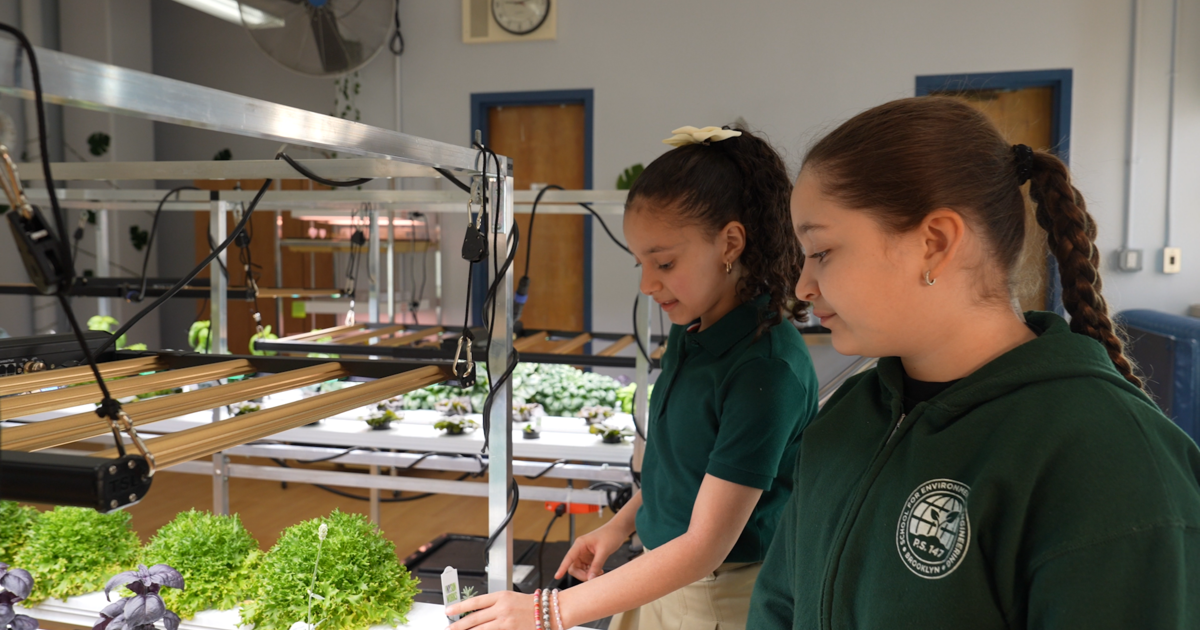
Organizations study climate change's varying effects on NYC communities

Lawmakers call for legislation addressing illegal smoke shops in NYC
National Today
- Arts & Entertainment
- Food & Beverage
- Relationships
- Special Interest
- Create a Holiday
Gift Guides
Got an idea for a holiday send it to us.

No Homework Day – March 6, 2025
No Homework Day, celebrated on March 6, is a holiday that seeks to give students a break from homework assignments. Homework refers to a set of tasks assigned to students by their teachers to be completed outside the classroom. Common homework could include any of a variety of required reading, mathematical exercises to be completed, information to be reviewed before a test, or other skills to be practiced, depending on the discretion of the teacher involved. The issue of how effective homework assignments are has been debated over the years. In a general sense, homework does not particularly improve the academic performance of students.
History of No Homework Day
No Homework Day was created by couple Thomas and Ruth Roy as a means to help students focus on activities other than homework. It is expected that on this day, parents give their children a break from homework and that teachers at school equally take a break from giving homework.
Research has shown that homework can lead to stress, thereby being counterproductive to the learning process. Homework eats up children’s free time for other activities necessary for development, and its importance in learning is rather obscure. Professors at Duke University have suggested that the 10-minute rule should apply to homework.
The No Homework Day isn’t about removing homework completely from the picture, but it is meant for everyone involved to take a step back and relax. It is about giving children a break. No Homework Day encourages students to take a break from homework for a day and focus on other rewarding activities like sleeping, reading a good novel, creating art, playing a sport, or any other such activity.
No Homework Day timeline
The first-ever high school, Shishi High School, based in Chengdu, China, is established.
American politician Horace Mann, who played a major role in the development of the foundational academic curricular system in the U.S., is born.
The Italian educator who is said to have “invented” homework, Roberto Nevilis, is born.
American filmmaker and co-founder of the holiday, No Homework Day, Thomas Roy, is born.
No Homework Day FAQ s
What is no homework day.
No Homework Day is an international holiday that was created to help students focus on activities other than homework.
When is No Homework Day?
No Homework Day is celebrated this year on March 6.
Who created No Homework Day?
No Homework Day was created by Thomas and Ruth Roy of “Wellcat.com.”
No Homework Day Activities
Skip homework.
The best way to celebrate No Homework Day is to skip homework altogether. Ideally, no one should be getting homework that day anyway, so it would be justified.
Engage in a hobby
In the absence of any homework, this is an opportunity to feed any of your hobbies, which could be anything from seeing a movie to playing a video game. Enjoy the day!
Share the fun online
No Homework Day is fun for everyone, so whatever hobby you decide to devote that free time to, let everyone know by sharing on social media with the #NoHomeworkDay hashtag! Start a conversation about it online!
5 Interesting Facts About Homework
It helps with memory retention.
Taking home assignments based on work done in school tends to help students retain the knowledge of what has been taught.
It provides hands-on experience
Doing homework gives the student the opportunity of having practical experience on the subject.
Homework could be stressful
Having to deal with a load of homework every day or every other day, could increase stress levels in a student and cause a lack of interest in school work.
Homework affects students’ social lives
Homework usually gets in the way of students having an active social life, and if it gets too overwhelming, it could have negative effects on the students.
Homework doesn’t guarantee hard work
In the age of the internet, it is very easy for students to plagiarize homework and not necessarily put the required amount of time into learning the subject.
Why We Love No Homework Day
It’s more time for fun.
No Homework Day means less academic work to deal with for the day and therefore more time to indulge in varying ideas of fun. We love fun!
It’s good for balance
No Homework Day is good for helping the students balance out their lives seeing as they get homework every other day. Balance is important in life.
Parents can bond with children over something else
On most days of the week, parents bond with their children over academic work. No Homework Day allows us to bond over something else, anything but homework.
No Homework Day dates

Holidays Straight to Your Inbox
Every day is a holiday! Receive fresh holidays directly to your inbox.
- 6,427 Days celebrated
- 19,281 Ways to celebrate
- 1,000,000+ Happy users
- Our Mission
- For Businesses
- For Journalists
- For Influencers
- Submit a Holiday
- Promote an Event
- Work With Us
- Submit an Error
Our Services
- Create A Holiday
- Sponsor A Holiday
- Data Licensing
- National Today Calendar
- Reviews and Gift Guides
Shopping Reviews
- Health & Fitness
- Home & Garden
- By Interest
- By Occasion
- By Recipient
Popular Holidays
- National Girlfriend Day
- Day of the Dead
- National Boyfriend Day
- National Sons Day
- Mexican Independence Day
- Pride Month
- National Best Friends Day
- National Daughter Day
- World Bicycle Day
- National Dog Day
About National Today
We keep track of fun holidays and special moments on the cultural calendar — giving you exciting activities, deals, local events, brand promotions, and other exciting ways to celebrate.
Follow us on
- January 10 Why Are American Drivers So Deadly?
- January 10 Trump’s Boldest Argument Yet: Immunity From Prosecution for Assassinations
- January 10 After Red Sea Barrage by Houthis, U.S. and Allies Weigh Retaliation
- October 27 Is the Republican Speakership Cursed? Johnson Is About to Find Out.
- October 27 Israel defense minister provides update on timing of ground invasion — with a warning
- October 27 House Democrat Dean Phillips launches primary challenge against President Biden
- October 27 Manhunt continues after Maine shooting rampage
- October 10 Alabama Sen. Tommy Tuberville refers former CIA head Michael Hayden to Capitol Police
- October 10 Former Harvard president feuds with university over response to terrorism against Israel
- October 10 Santos Faces New Charges Accusing Him of Lies and Credit Card Fraud

The Harborlight

Readers' Opinions and Editorials
- Student Life
Is It Really A No Homework Weekend?

A student staying up late to complete her homework (Flickr).
Leanne Moczynski , Contributing Writer February 5, 2018
The Super Bowl is here, and as it was in last year, the Hingham High School enacted a homework-free weekend to allowed teachers and students alike to enjoy the game without stressing about work.
Mrs. Marshall, an English teacher at Hingham High, is one of many in the school community who supports no homework weekends. Of the concept in general, she enthuses, “It’s a wonderful idea. I think that we are in general a stressed, overworked nation. I know I myself would like to spend more time with my family.”
Commenting on this weekend’s no homework decree, she adds, “I think Super Bowl weekend is a great time to do it because we’re all rallying around the Patriots and we can all spend this time with our family.”
Many students also enjoy the reprieve from homework-induced stress. Sophomore Olivia Barbuto remarked, “The amount of homework we usually receive is so stressful and gives us no time to just hang out and relax, so I’m always excited for homework free weekends!”
This small break alleviates students’ stress tremendously and allows for time to get adequate sleep, so all teachers must honor it, right?
Unfortunately, there are teachers who bypass the rule. Sometimes a teacher is forgiving and only assigns a short worksheet. Other times, a class may be behind and necessitate a few book problems outside the classroom.
However, it seems like some teachers flout the rule for no good reason. The most prevalent tactic is to give several days’ worth of homework and set the due date to Tuesday instead of Monday, so students technically have a day after the weekend to complete the homework. But, given the volume of the assignment, students usually end up doing homework over the weekend anyway.
The students of such teachers frequently voice their dissent. Sophomore Riley Potter, who is faced with homework and a test immediately upon returning from the no homework weekend in her geometry class, asserts, “We should not have homework over the homework free weekend because it is one of our rare times to relax and sleep.”
Many teachers, too, disapprove of this underhanded method. Mrs. Black, a social studies teacher, explained, “If it’s something really important that has to get done as quickly as possible, I understand. If it is something that can get done Monday night, I think it’s fair. But if it’s a much larger assignment, I think that defeats the purpose of a no homework weekend.”
Mrs. Black also acknowledged the high stress levels students these days are enduring, empathetically and intelligently calling the benefit of homework into question. She argues, “Even though I think work outside the classroom is important, there have been a lot of studies that debate the efficacy of assigning homework in the first place. So, while we still debate homework’s merit, I think it’s good to at least give a weekend as a break.”
Given the merits of no homework weekends, it seems reasonable to request compliance from teachers who usually circumvent the rule. No homework weekends should be students’ time to unwind and get a few good nights of sleep amid the chaos of balancing school work with all other aspects of life, as well as an opportunity for everyone to spend more time with family.

- Arts & Entertainment
New Movie Release- Dune: Part Two

Hingham High School Set to Debut Six New Tennis Courts In Spring

Managing Stress Over the Course of the School Year

Leave the World Behind

Wonka is Whimsical Family Fun, but Doesn’t Quite Live up to the Magic of the 1971 Original

Best Books I Read in 2023

Top 5 Snowstorm Comfort Dishes at HHS

HHS Juniors Wrap Up NHD Projects After Months of Work

Top 5 Most Anticipated Movies Coming Out in 2024!
Shining a light on Hingham news
- Readers’ Opinions and Editorials
- Photo of the Week
Comments (0)
Cancel reply
Your email address will not be published. Required fields are marked *

The Township Times

Are “No Homework Weekends” Really No Homework?

Rose Montgomery , Staff writer May 17, 2023
Being a high school student can be very taxing on a teenager’s brain. With the constant assignments and tests adding up, students can begin to feel overwhelmed and stressed. To combat this, schools around the district have begun to implement No Homework Weekends once a month to give students time to relax and catch up on missing work. Many students have found this addition helpful as they are able to have a monthly reset and stay on top of their work; however, some students feel that these breaks should occur much more often.
“No Homework Weekends are nice because they give students a time to take a rest and not worry about school. I think that we should have them every weekend because they allow us to destress and reset for the upcoming week,” said sophomore Kayla Marino.
Although students are fond of these breaks, teachers have a few hesitations about the timing of them. Math teacher Mrs. Seibel said that “[No Homework Weekends] can be difficult to fit into teachers’ packed lesson plans, and are a challenge for scheduling assignments.”
Even though No Homework Weekends can sometimes be challenging to fit into teachers’ schedules, Mrs. Seibel never gives homework on these weekends because “students need a break from schoolwork and to have time with their families.”
However, there are still some teachers who assign homework on these weekends anyway. “They are non-existent for me. I always have at least one teacher that gives me homework or a project due over the weekend,” said freshman Jaelyn Neirdermyer.
No homework weekends are seen as a blessing to some and a burden to others. Although the idea of a weekend without any assignments may seem simple, there are many factors that may cause a teacher to assign homework. Considering students’ heavy work loads between AP, IB, and honors courses, there are many commitments and complex projects that students must complete, no matter the day. However, with the end of the year quickly approaching, there is a long summer break waiting for students after their final exams.

Op: MTPA’s Performance of “Fame” Showcases the Talented Students at MT • 168 Views

Opinion: The Problem With Colleen Hoover, The Star Of BookTok • 123 Views

Opinion: Biden Lays Out A Strong Case In The State Of The Union Address • 116 Views

Opinion: AI Can Be Harmful, Especially To Women • 109 Views

Swimming for Success: The Swim Team Breaks Records This Season • 109 Views

Meet Your Principals: Ms. Rakoczy
Student Spotlight: MT Senior Alicia Blanco Shares Their Talent for Spoken Word Poetry

A Look at the 2024 Oscars

Meet the Mini-THON Heads

Ski Club Persisted Throughout the Winter Despite Unpredictable Weather

With a Total of $74,546.81, Mini-THON Hosts Their Main Event
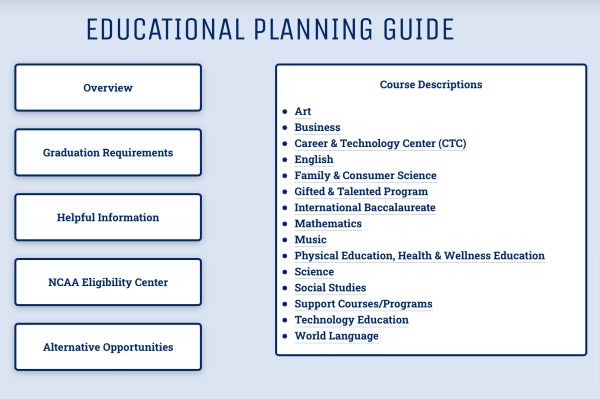
A Course Selection Overview

Taylor Swift Announces Creation of Her New Album, “The Tortured Poets Department”

Senior Lucy van Harskamp Helps Students Register to Vote

Six MT Musicians Advance to Regional Band

Comments (0)
Cancel reply
Your email address will not be published. Required fields are marked *
- Top Stories
- Pinoy Abroad
- #ANONGBALITA
- Economy & Trade
- Banking & Finance
- Agri & Mining
- IT & Telecom
- Fightsports
- Sports Plus
- One Championship
- TV & Movies
- Celebrity Profiles
- Music & Concerts
- Digital Media
- Culture & Media
- Health and Home
- Accessories
- Motoring Plus
- Commuter’s Corner
- Residential
- Construction
- Environment and Sustainability
- Agriculture
- Performances
- Malls & Bazaars
- Hobbies & Collections
- Travel Features
- Travel Reels
- Travel Logs

Senator Ramon “Bong” Revilla Jr. eyes lighter academic load for elementary and junior high school students, hinting that home works are counter-productive for the children.
Revilla filed Senate Bill 1792, dubbed “No Homework Act of 2023,” meant to give the parents more quality time with the kids who could then engage in non-academic activities.
According to Revilla, take-home assignments lower the productivity and attitude of the students toward education, which in turn leads to more dropout rates and lower grades.
SB 1792 mandates that homework would be allowed only during weekdays, thus only no mandatory homework or assignments on weekends. The measure also provides that the students’ assignments must be minimal, should not require more than two hours to finish on voluntary basis.
The senator cited a 2009 study conducted by The Organization for Economic Cooperation and Development’s Program for International Student Assessment (OECD PISA) which indicated that the additional time invested in homework has a negligible impact on a student’s performance.
“Countries that have significantly reduced homework load on students expounds that there is a correlation between assigning more homework to students and increased level of anxiety that leads to low motivation in school work. The additional time allows the children to relax their mind, and increases their ability to better grasp concepts,“ Revilla explained.
The proposed law, according to Revilla, aims to institutionalize and expand the Department of Education (DepEd) Memorandum Circular No. 392, s. 2010, which provides guidelines on giving homework to all public elementary school pupils.
The circular is in response to the parents’ concerns about the amount of time pupils consume in accomplishing their homework, instead of having enjoyable and quality time with the family, Revilla said.
- no homework
- Ramon “Bong” Revilla Jr.
LATEST NEWS
Allowing brp sierra madre to rot is treasonous—former navy chief, marcos names marbil as next pnp chief, marcos designates peralta as pnp officer-in-charge, replacing acorda, this is it greenbelt 1 shuts its doors for redevelopment by april 1, unite for a more prosperous philippines, speaker urges filipinos on easter sunday, marcos signs new eo enhancing maritime security over west philippine sea, popular articles, another duterte war on drugs, defending sovereignty: an urgent call to action, germany gives controversial green light to cannabis, 8 posing as dbm officials arrested in nbi dragnet, doj sets free 783 prisoners in simple rite, zubiri bares plan to retire after 30 years as a politician, customs seizes over p43-b in smuggled goods in 2023, military deplores ‘penchant for terrorism’ of communist rebels.
- Economy & Trade
- Banking & Finance
- Agri & Mining
- IT & Telecom
On the Road
- Monitoring Plus
- Commuter's Corner
- Malls & Bazaars
- Hobbies & Collections
- Entertainment
- TV & Movies
- Music & Concerts
- Culture & Media
Home & Design
- Environment & Sustainability
- Users Agreement
© All Rights Reserved, Newspaper Theme.
- Special Pages

IMAGES
COMMENTS
A weekend with no homework would help them to be fresh and ready on Monday morning. Weekend assignments tend to be longer and more difficult. The students have a difficult day with classes, practices, and going to school. By Friday, (test day) they are near exhaustion. Most tests are given on Fridays.
Emmy Kang, mental health counselor at Humantold, says studies have shown heavy workloads can be "detrimental" for students and cause a "big impact on their mental, physical and emotional health ...
For older students, Kang says, homework benefits plateau at about two hours per night. "Most students, especially at these high achieving schools, they're doing a minimum of three hours, and it's ...
Trailblazer Staff • October 11, 2023. Photo courtesy of UC San Diego. This year, the school has implemented a new policy called the "No Homework Weekend.". This means that every long weekend, students should not be assigned homework from their classes that will be due the day they come back. The policy was implemented in an effort to aid ...
Schools in Princeton, New Jersey, began implementing one homework-free weekend each semester in 2015, in part to give students more time to pursue interests and passions outside of school. Other New Jersey schools limit the number of minutes students should spend on homework each night. In Hinsdale, Illinois, one high school began offering ...
A new debate in New Jersey is bringing the homework controversy to light once again. The Galloway Township school district is discussing whether students should be given homework-free weekends so that children can have more time with their families and for extracurricular activities and sports.The plan is still in the discussion phase in this district, and it will need to go before the school ...
The authors believe this meritocratic narrative is a myth and that homework — math homework in particular — further entrenches the myth in the minds of teachers and their students.
In a weekend homework survey of teachers, about 20% of Sofo teachers give no homework over the weekend. Out of the 80% that do, almost 50% try to avoid it when necessary, and 29% only assign a couple of times per month. Most teachers try to avoid giving weekend homework unless necessary. They mostly assign it as extra practice or make-up work.
Homework should be reserved for weekdays only. Bridget Linchuk ('12)/Eastside staff. February 16, 2011. During the school year, weekends are the only time students can have free time to spend with their family and friends, unlike weekdays when students are piled on with loads of homework given by teachers. Students should not have homework on ...
The upcoming "No Homework Family Weekends" for the upcoming academic year and corresponding holidays are: Nov. 11-12, 2023 Diwali (Nov. 12) Dec. 7, 2023 Hanukkah (Sundown Dec. 7) Dec. 22, 2023 ...
MANILA, Philippines — Saying children are "overworked" with 10 hours spent at school on weekdays, Tutok to Win Rep. Sam Versoza has filed House Bill No. 8243 — the proposed "No Homework
Homework does not help younger students, and may not help high school students. We've known for a while that homework does not help elementary students. A 2006 study found that "homework had no association with achievement gains" when measured by standardized tests results or grades. [ 7]
No more giving school work to students on weekends. Senior Nideesh Shanmugam Bhuvaneswari uses his lunch period on Jan. 5 to study for his upcoming AP Calculus AB test. After five, roughly seven-hour-long school days, on top of the time it takes to complete homework, students are left feeling exhausted and looking forward to the weekend.
Examining these arguments offers important perspectives on the wider educational and developmental consequences of homework practices. 1. Elevated Stress and Health Consequences. According to Gitnux, U.S. high school students who have over 20 hours of homework per week are 27% more likely to encounter health issues.
So here's some good news for our students: This weekend—beginning on September 27—is a No Homework weekend. Additionally, Monday, September 30 and Tuesday, October 1 are No Homework evenings as well. Years ago, we set up No Homework zones on certain weekends to give students a break and create space for families to do special things. We also have given No Homework zones around Rosh ...
Too much, however, is harmful. And homework has a greater positive effect on students in secondary school (grades 7-12) than those in elementary. "Every child should be doing homework, but the ...
No-homework weekends are an effective solution to students' difficulties during the beginning of the school year. It will prepare them for college, and life beyond, as well as provide a much needed mental break, resulting in greater productivity while in class. Akshay Garapati ('23) is excited to be serving his first term as the Sports ...
Parents are free to assign their children homework if the "no homework" plan doesn't work for them. At P.S. 116, where students have been homework-free for two years, teachers report no change in ...
March 6, 2024. No Homework Day, celebrated on March 6, is a holiday that seeks to give students a break from homework assignments. Homework refers to a set of tasks assigned to students by their teachers to be completed outside the classroom. Common homework could include any of a variety of required reading, mathematical exercises to be ...
The Super Bowl is here, and as it was in last year, the Hingham High School enacted a homework-free weekend to allowed teachers and students alike to enjoy the game without stressing about work. Mrs. Marshall, an English teacher at Hingham High, is one of many in the school community who supports no homework weekends....
No homework weekends are seen as a blessing to some and a burden to others. Although the idea of a weekend without any assignments may seem simple, there are many factors that may cause a teacher to assign homework. Considering students' heavy work loads between AP, IB, and honors courses, there are many commitments and complex projects that ...
Description. No homework on weekends will allow for students to catch up on things that they could be behind on such as past school work, or more importantly, sleep! Gives students a chance to also do other things outside of school work. This provides students with the opportunity to live a more well rested life, increasing academic performance ...
Revilla filed Senate Bill 1792, dubbed "No Homework Act of 2023," meant to give the parents more quality time with the kids who could then engage in non-academic activities. According to Revilla, take-home assignments lower the productivity and attitude of the students toward education, which in turn leads to more dropout rates and lower ...